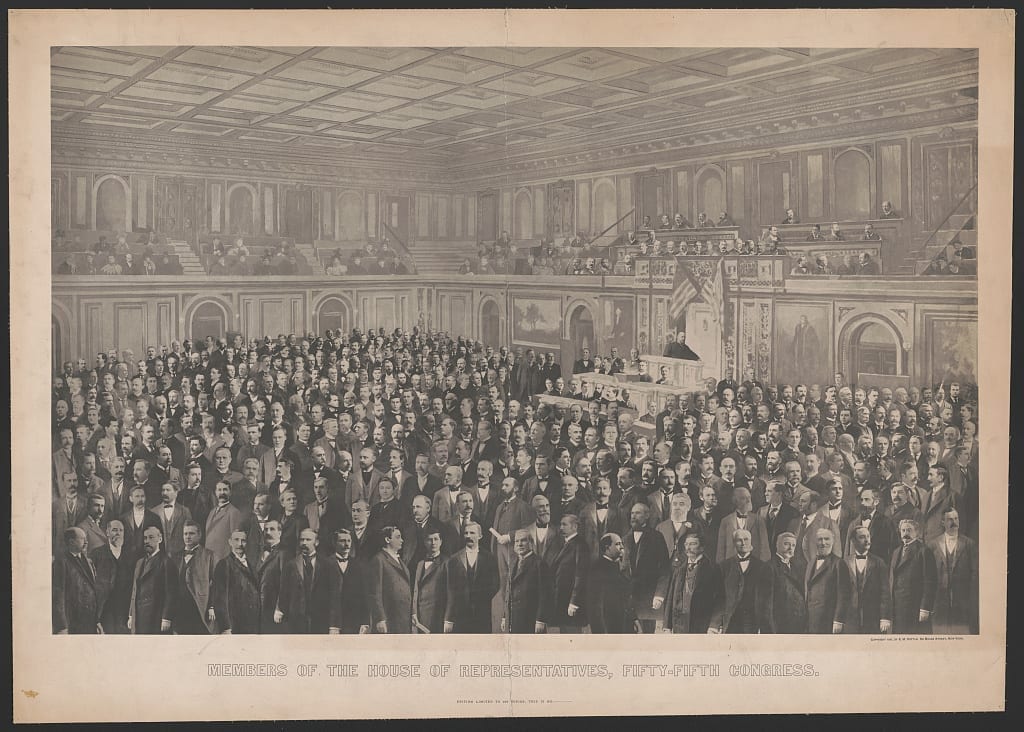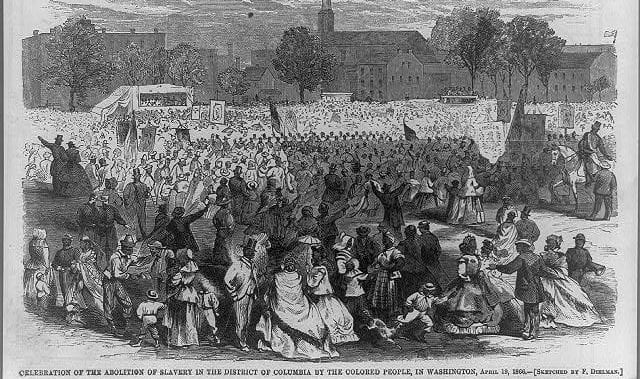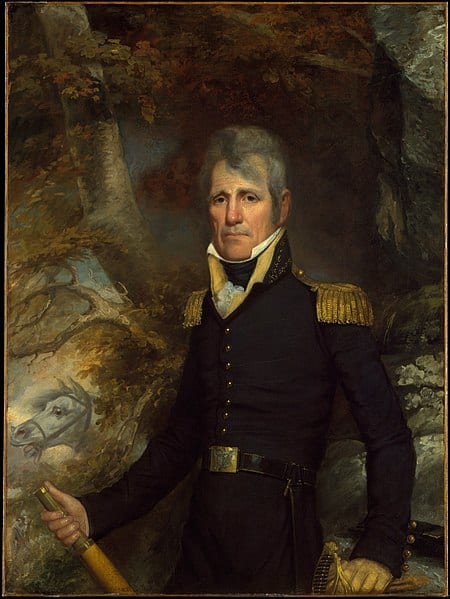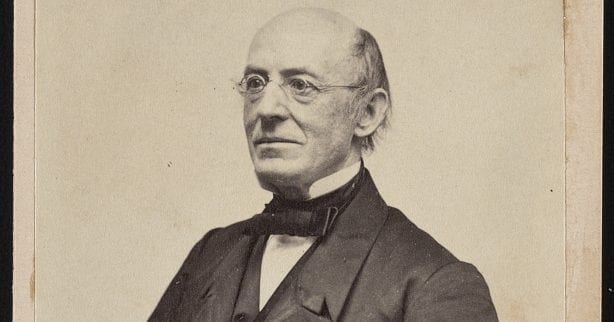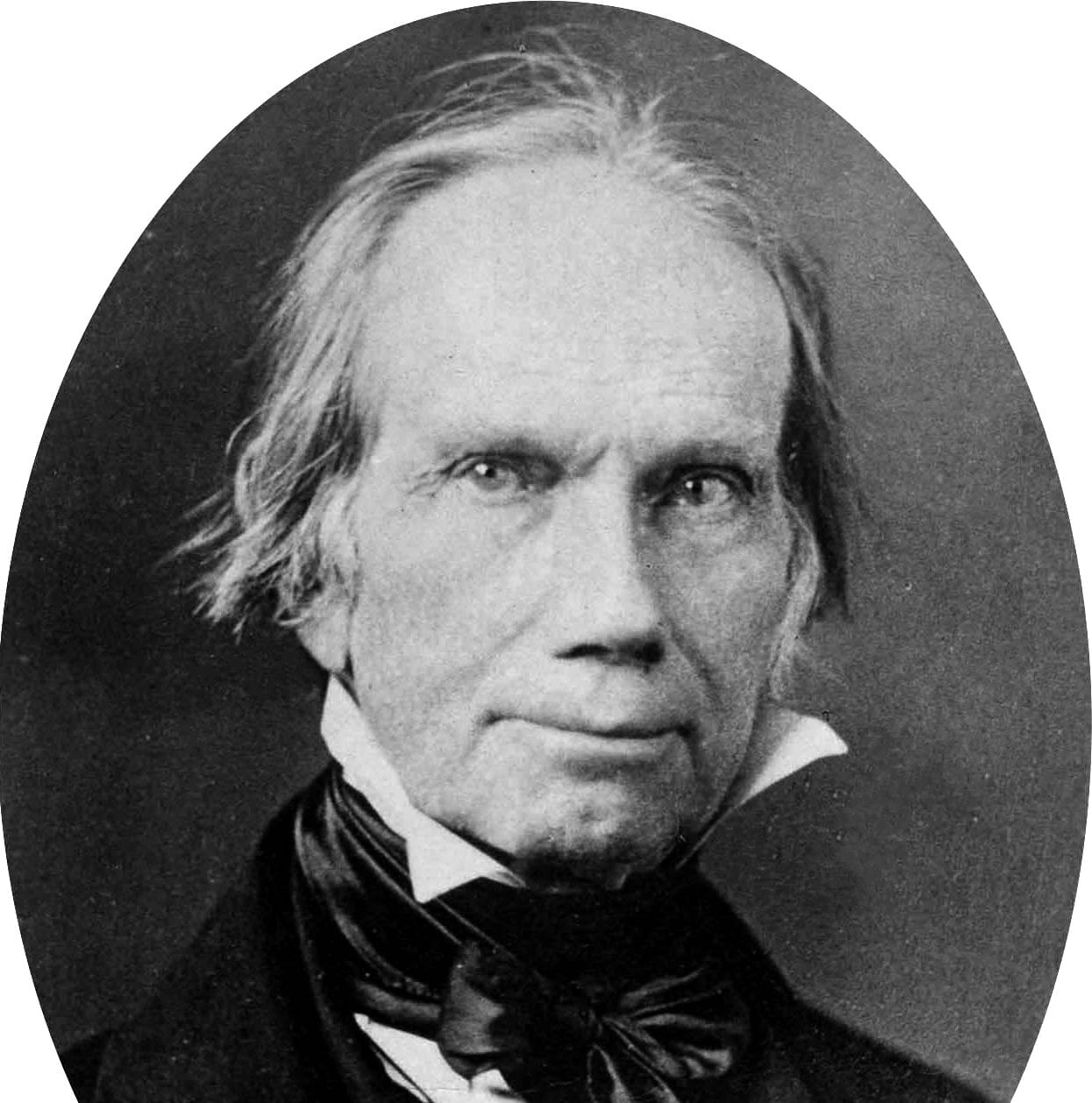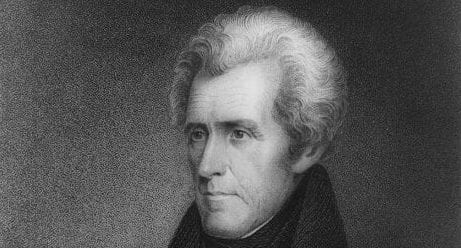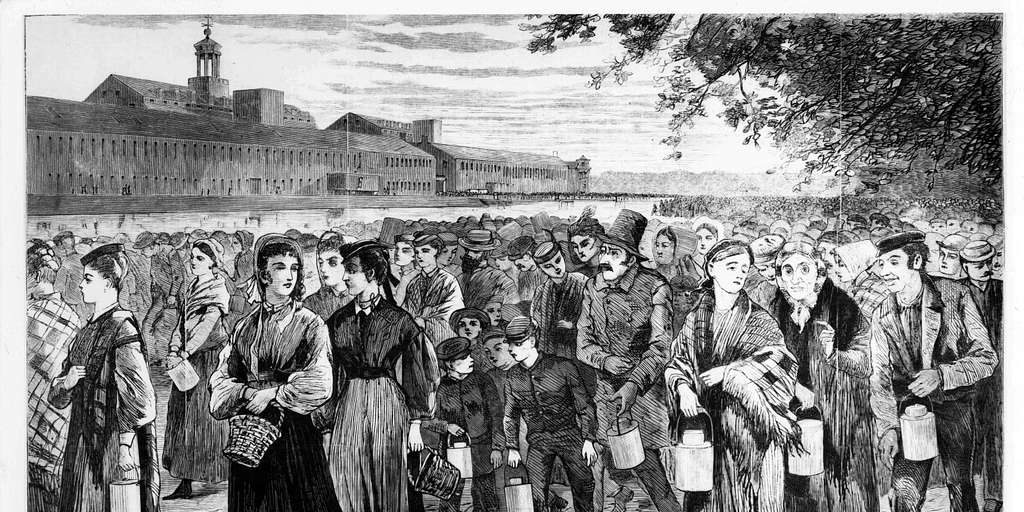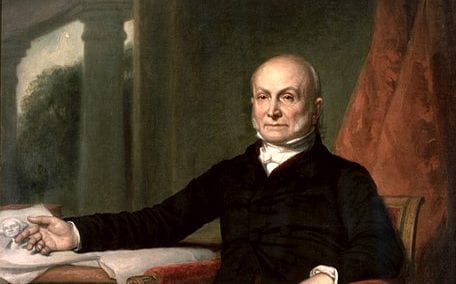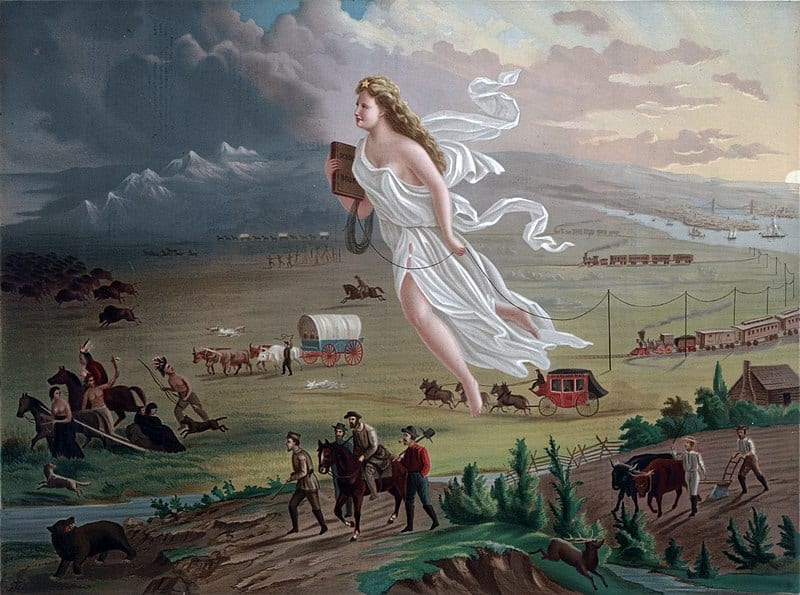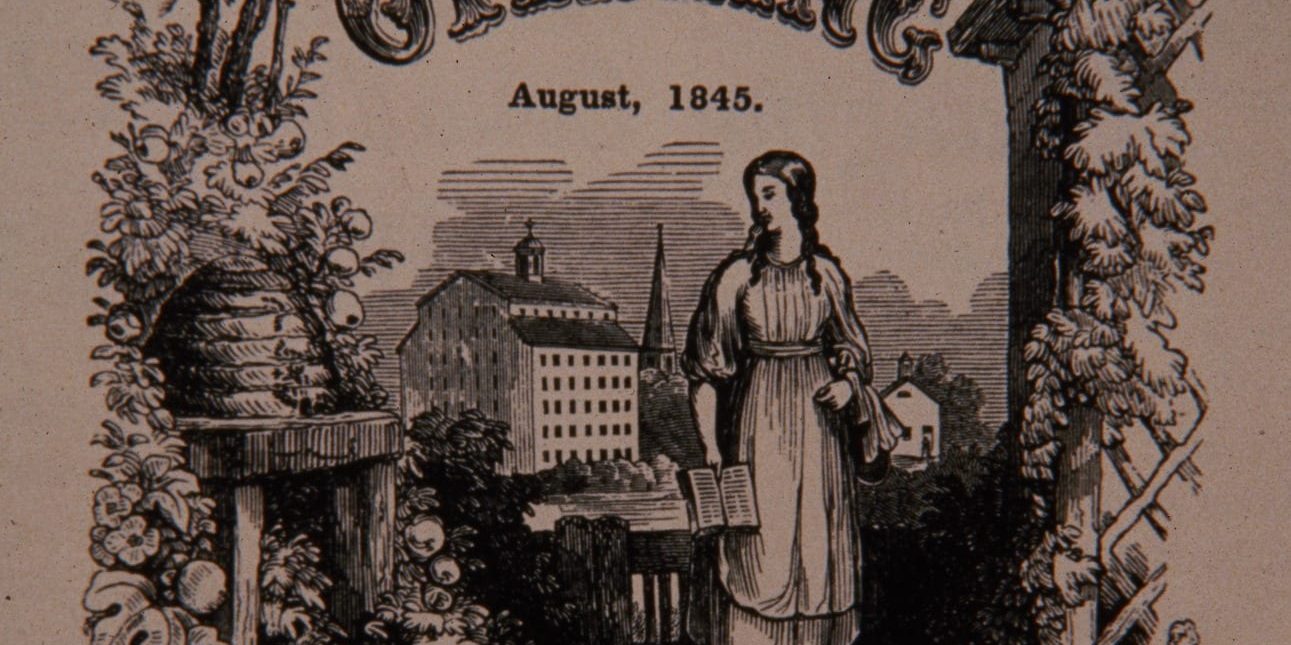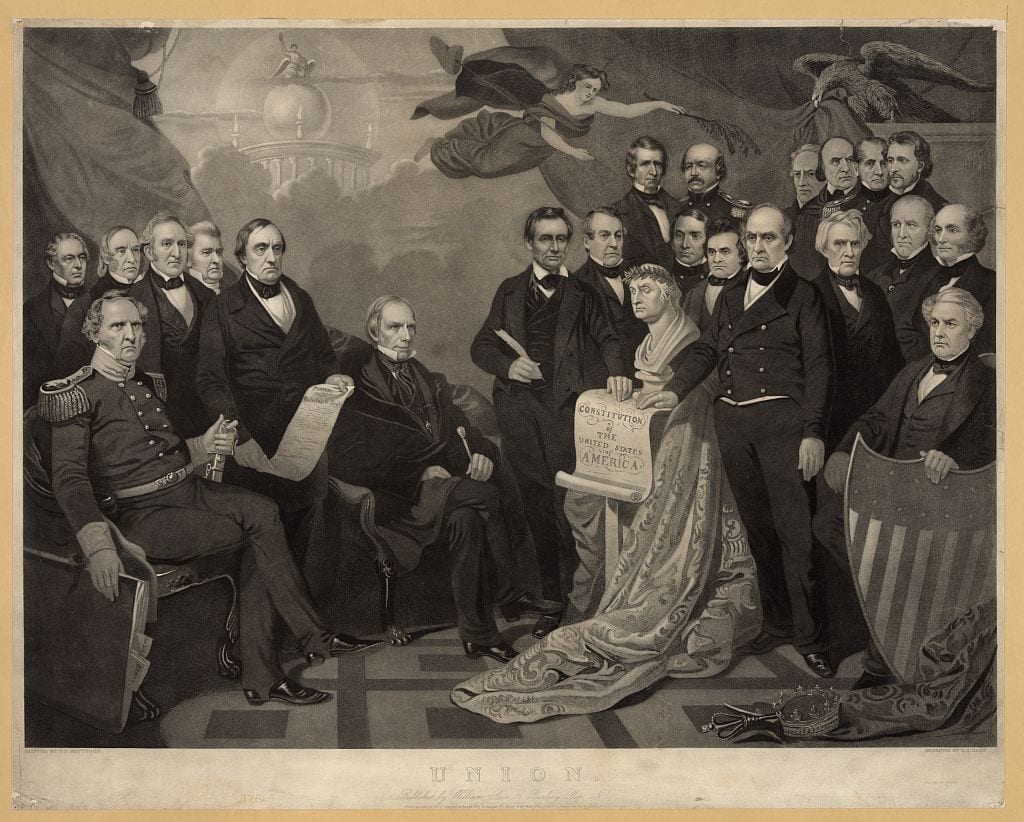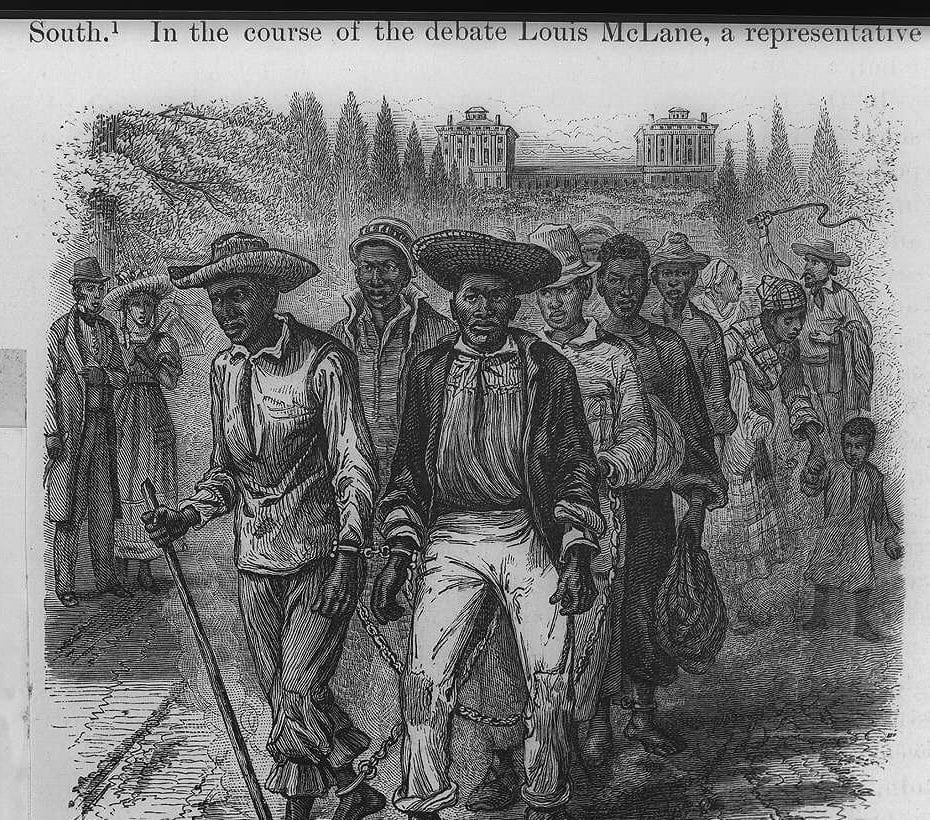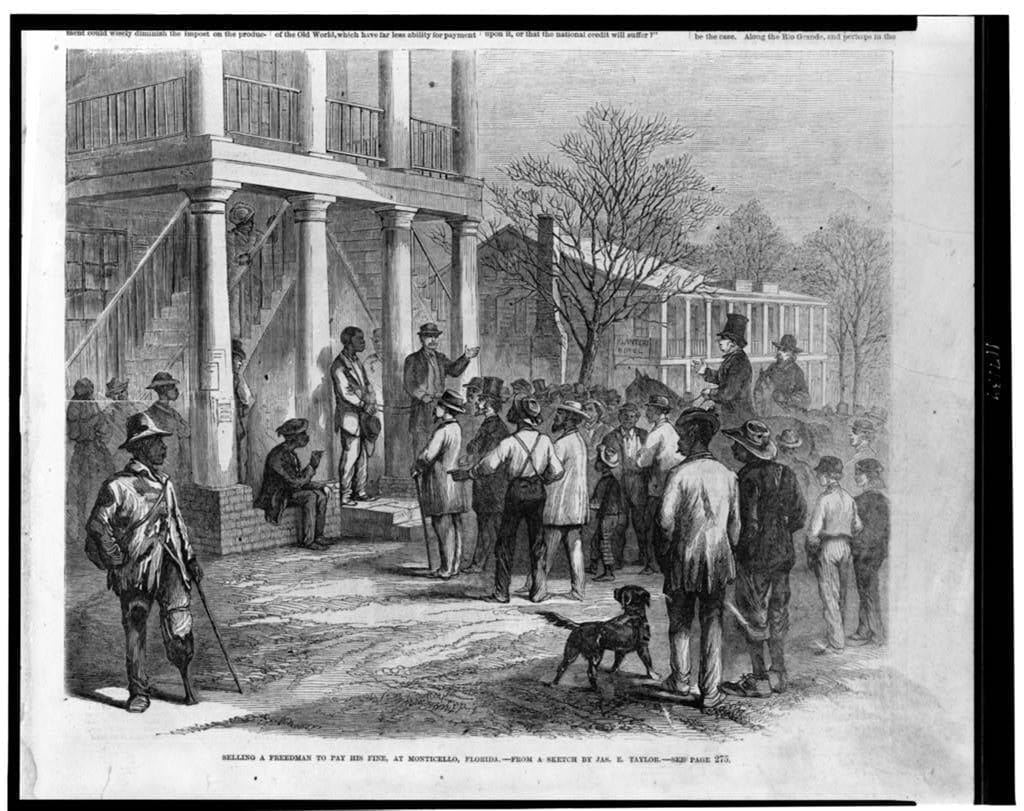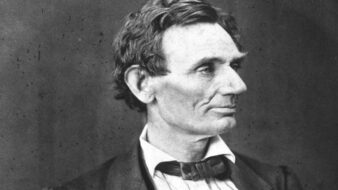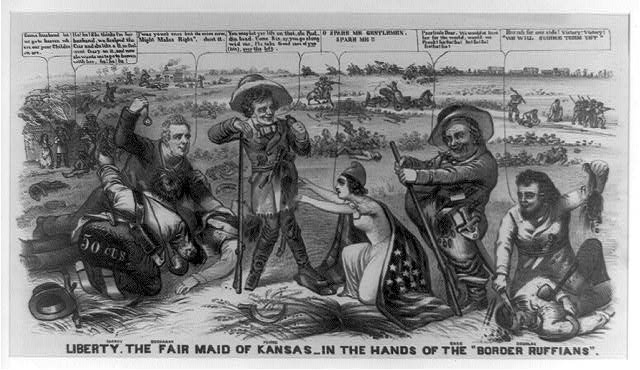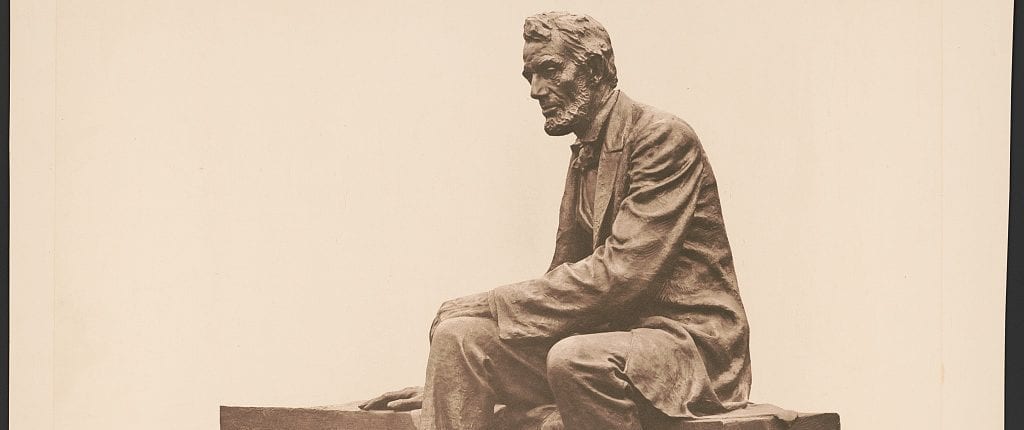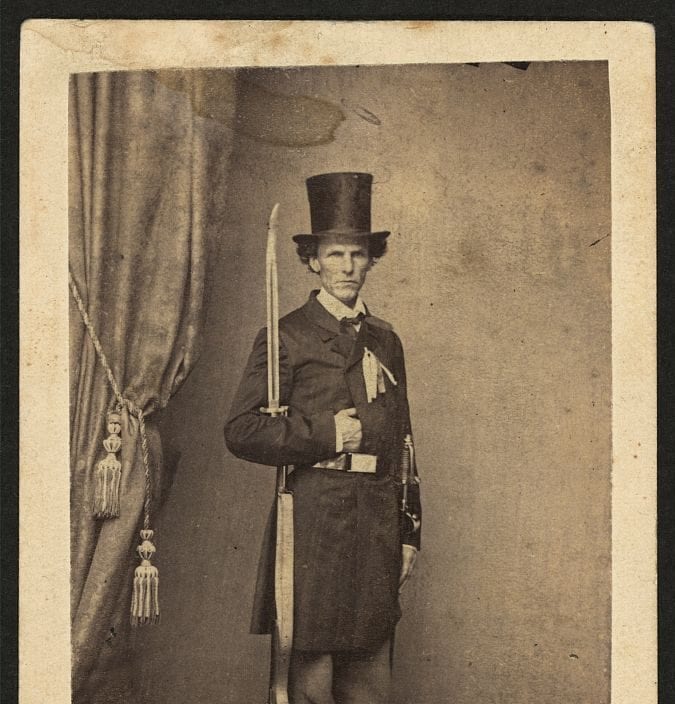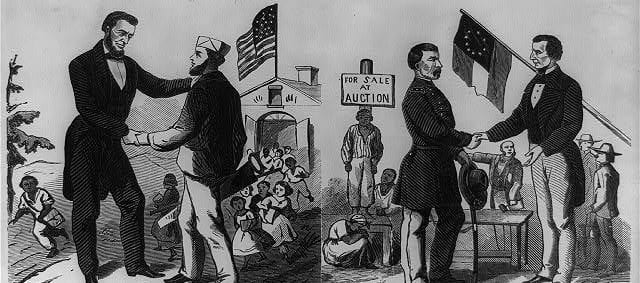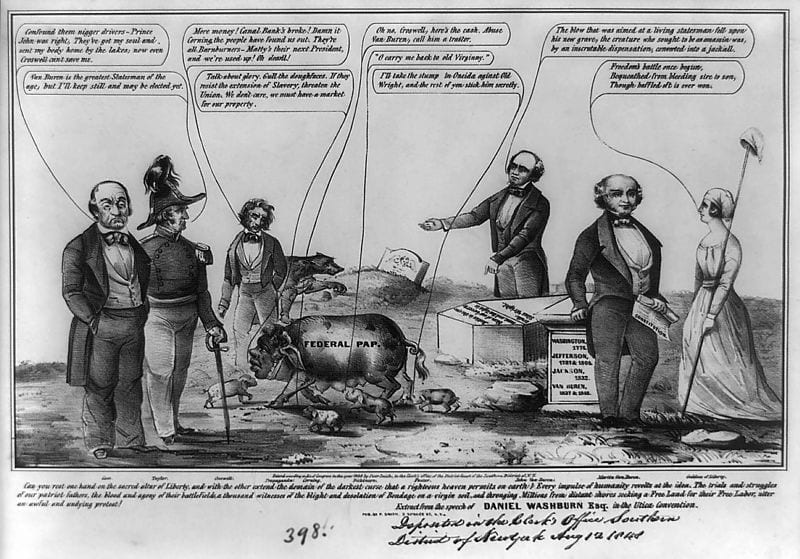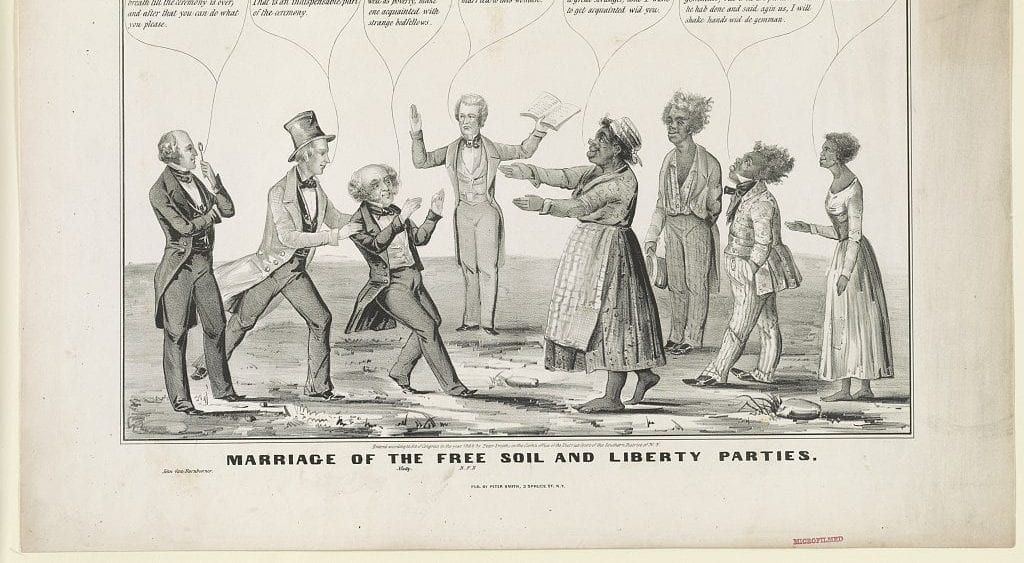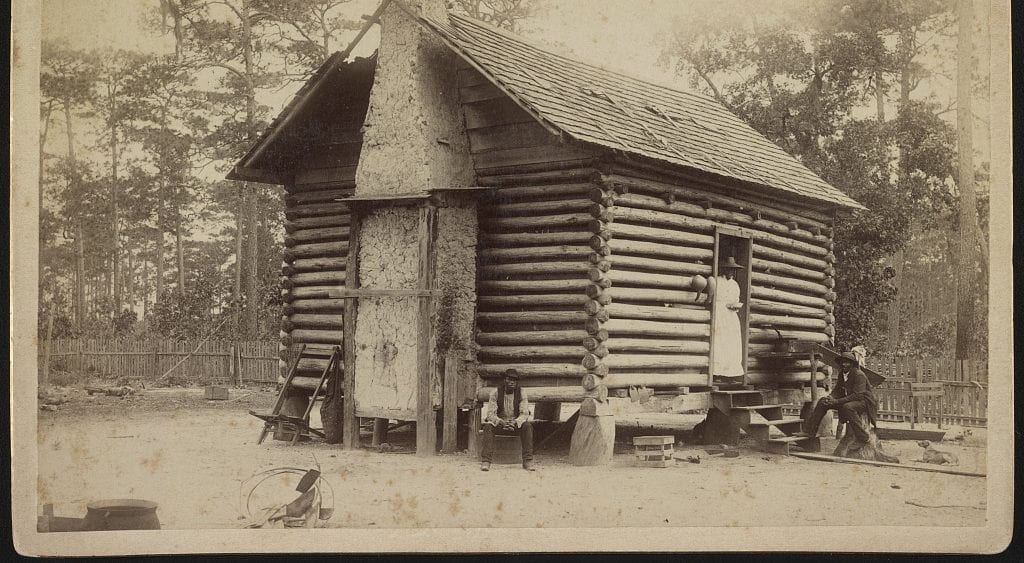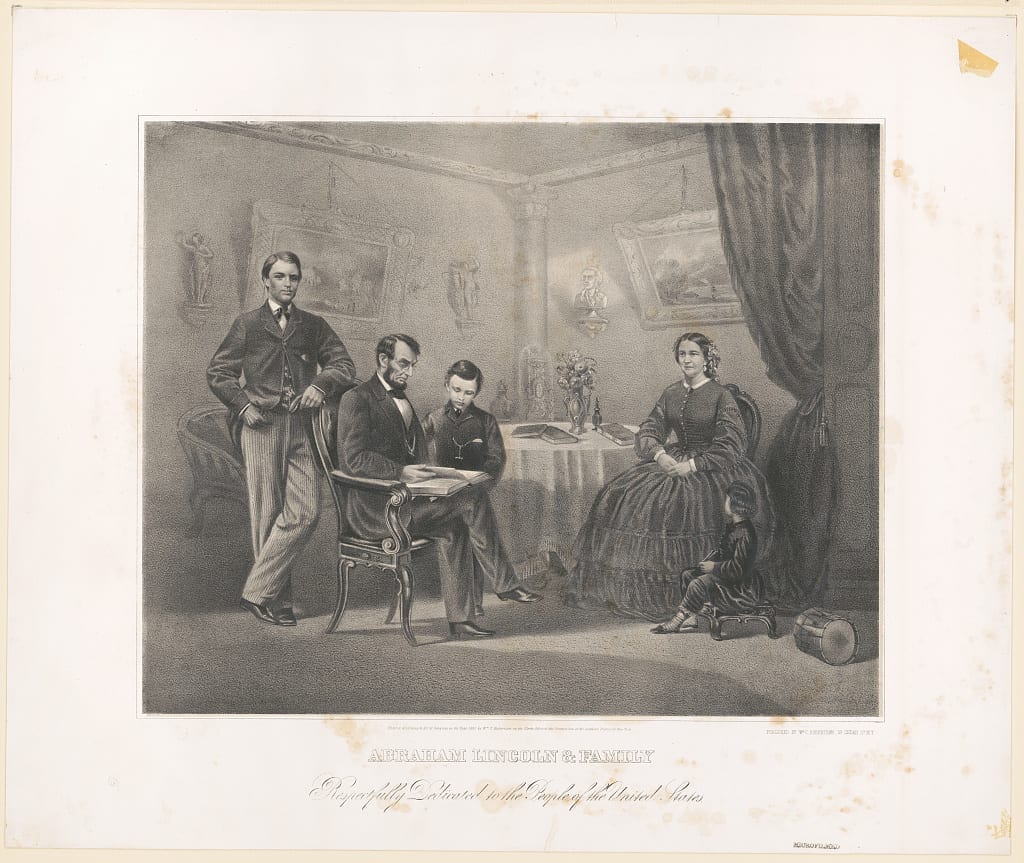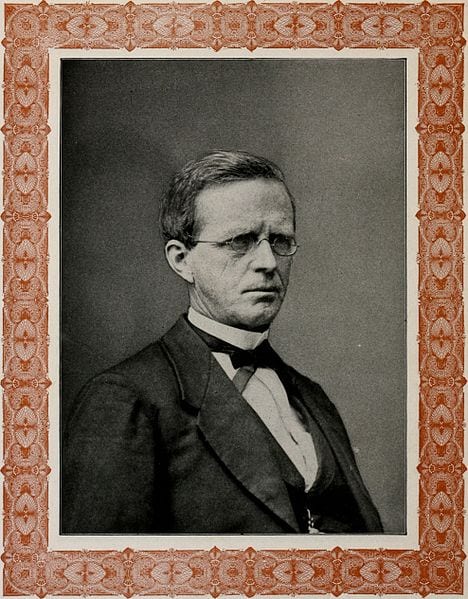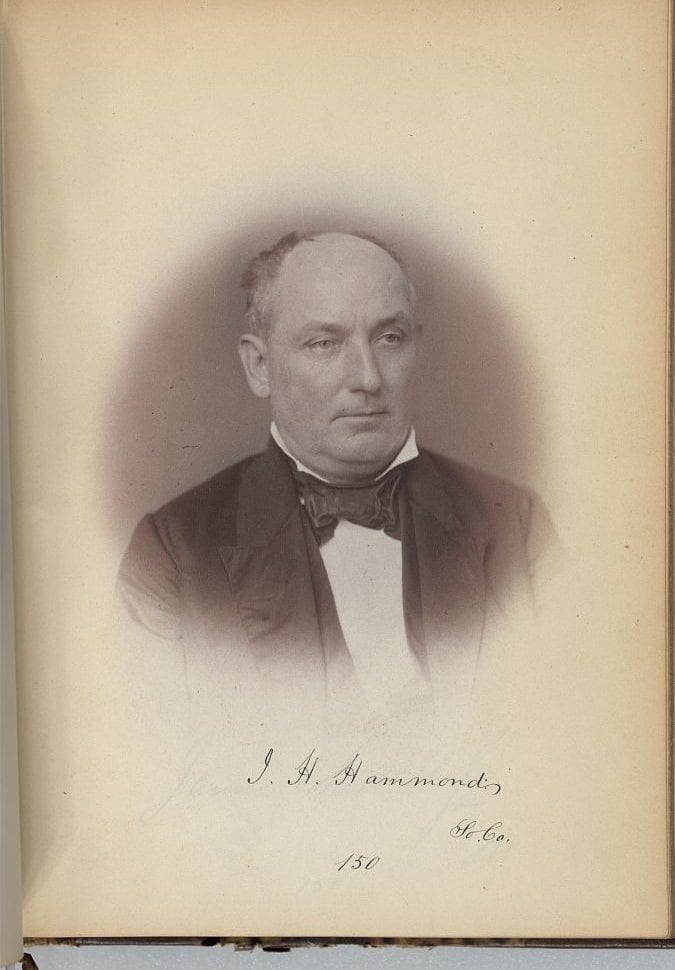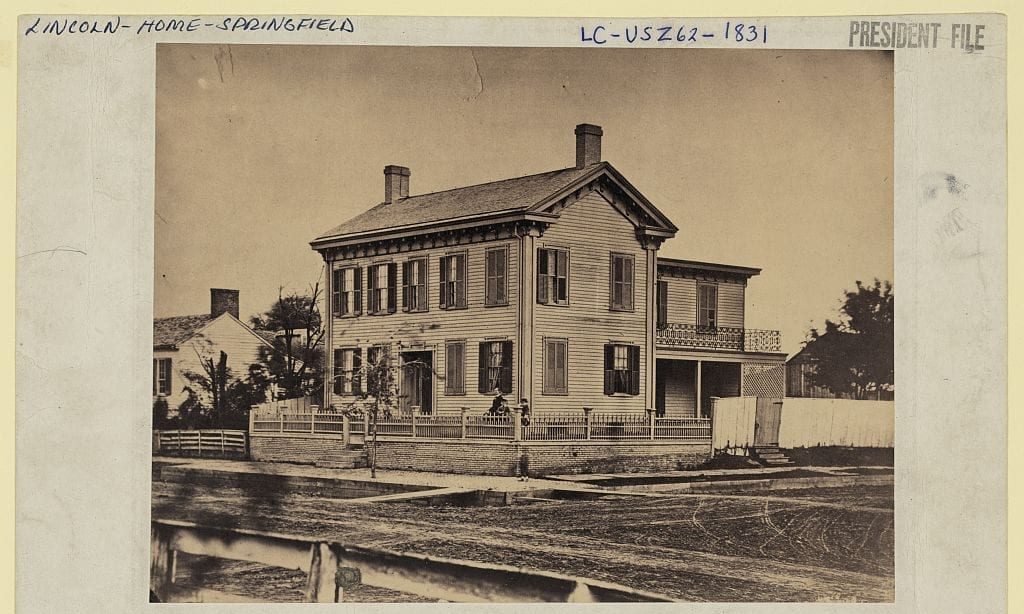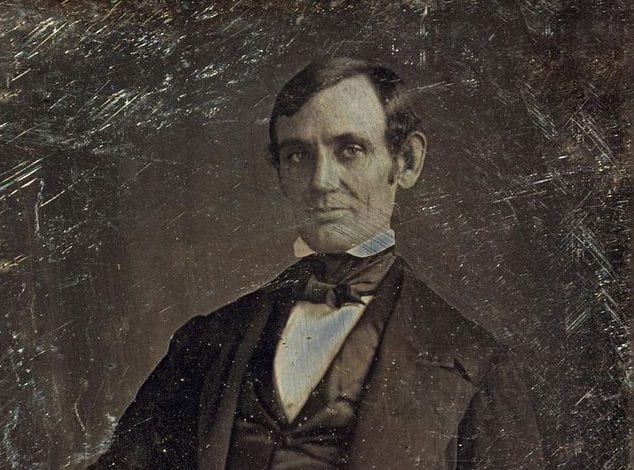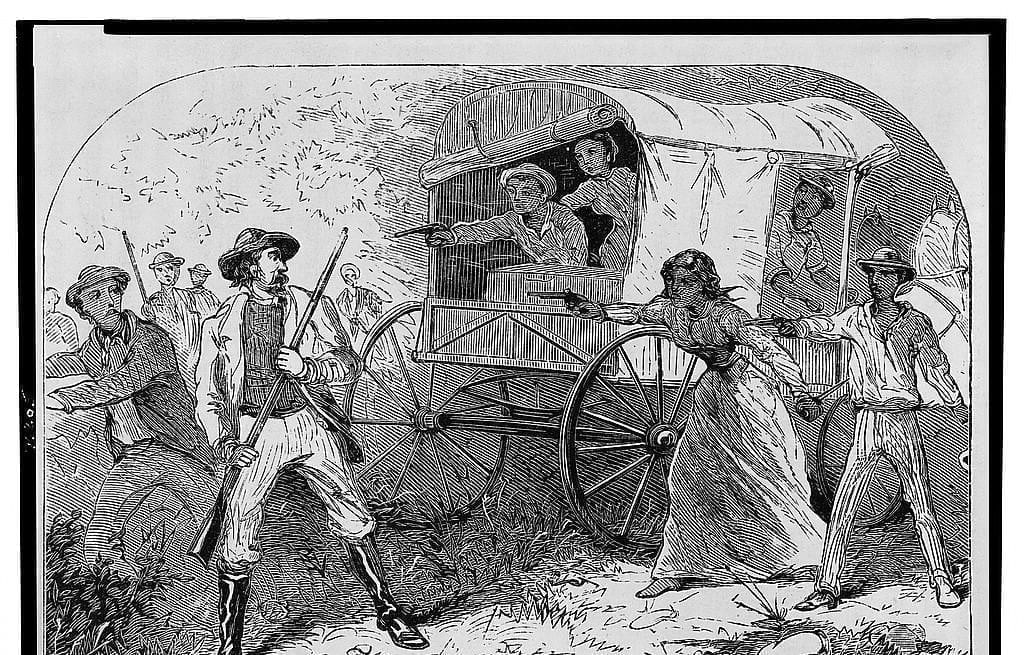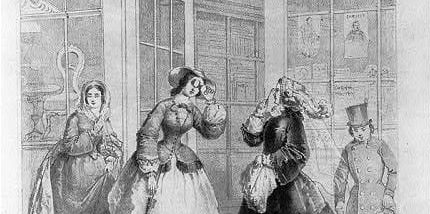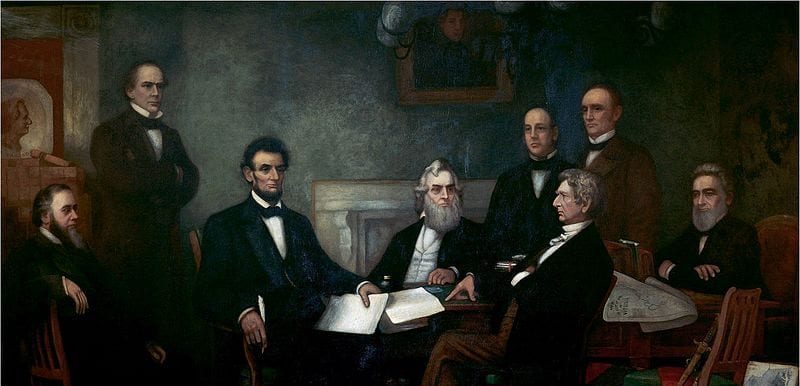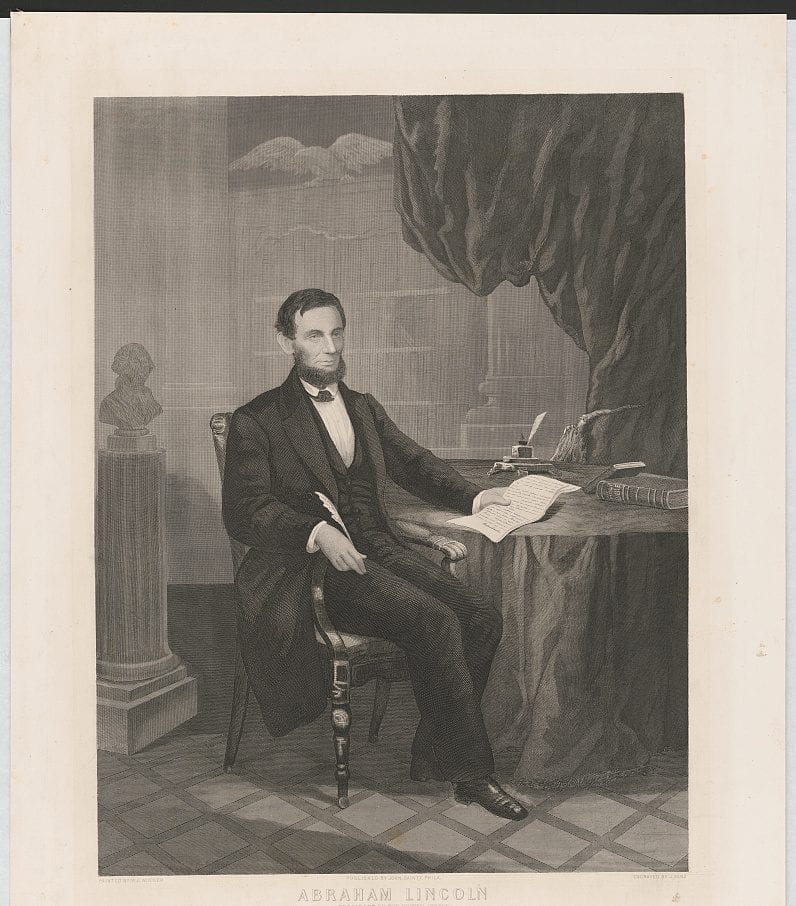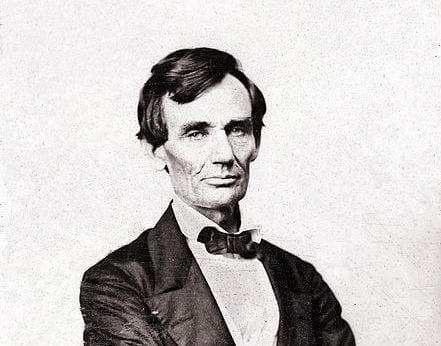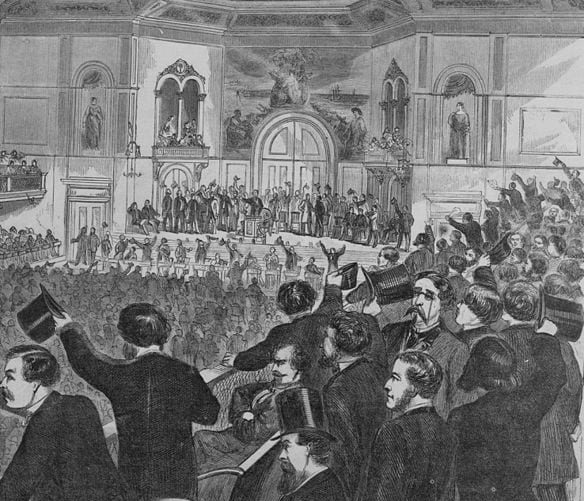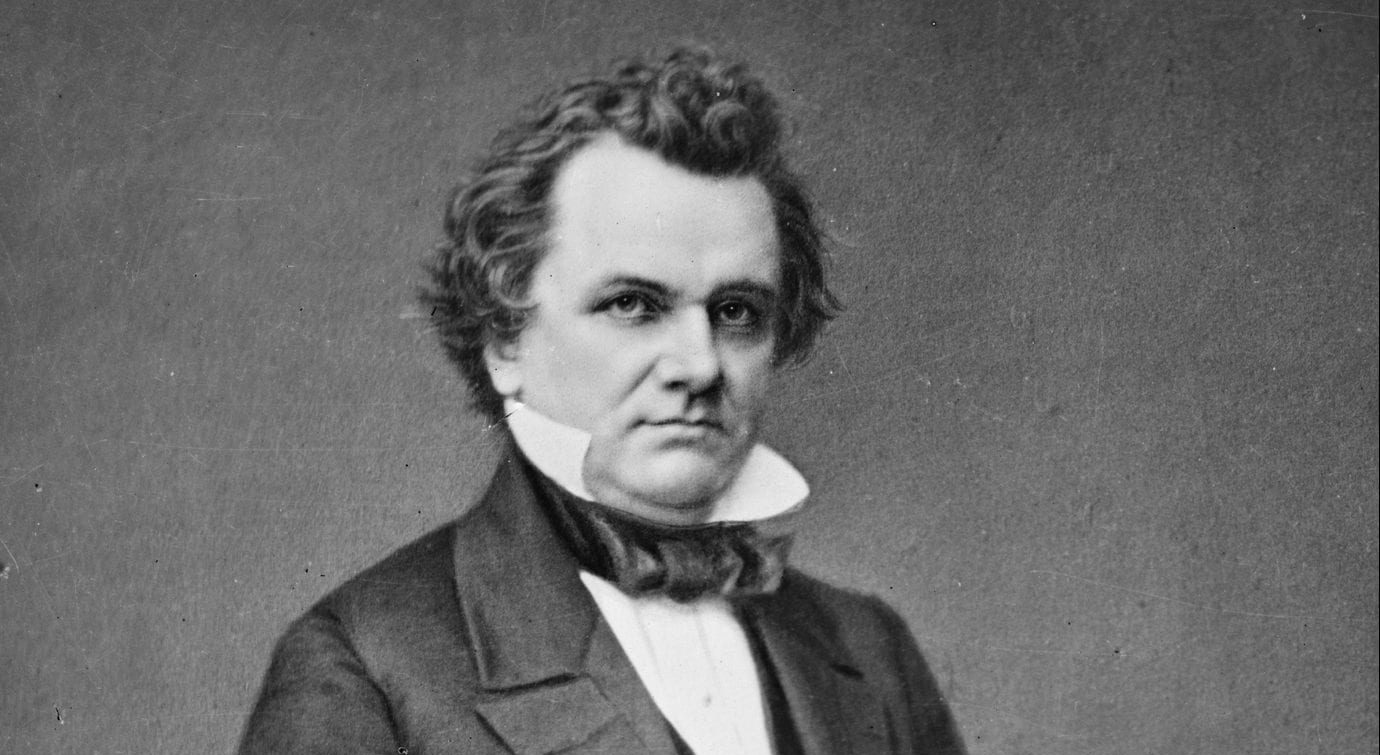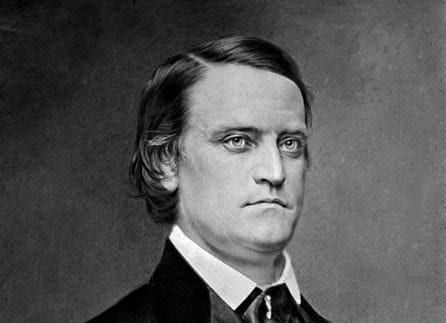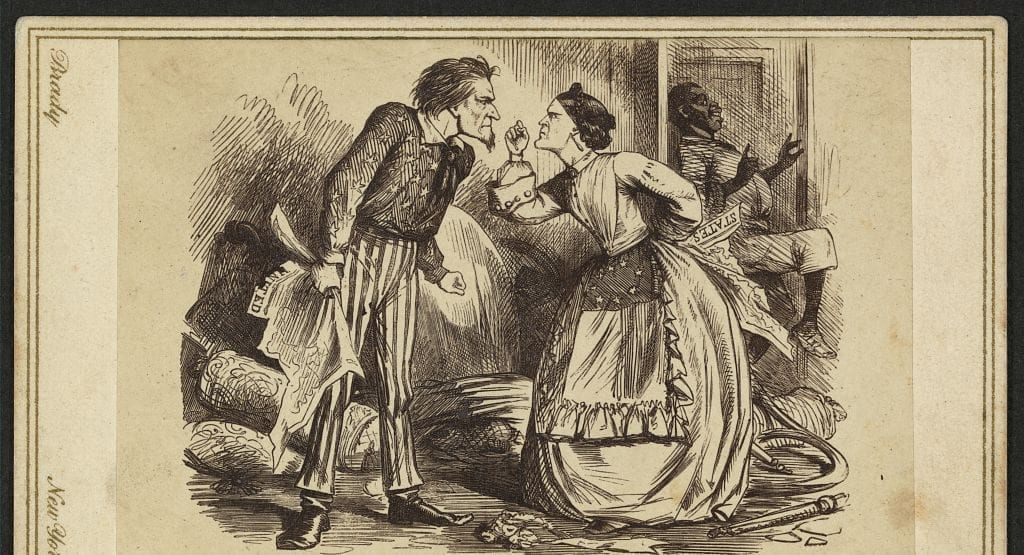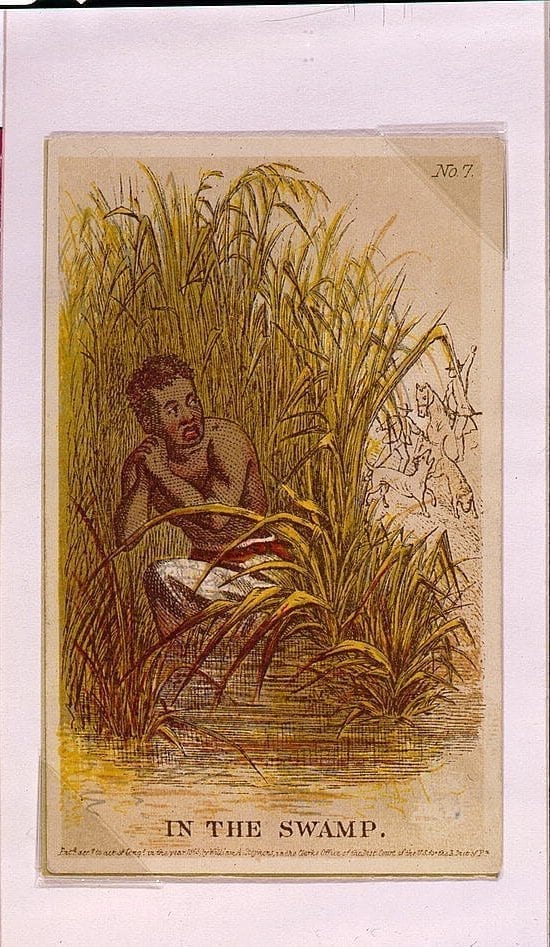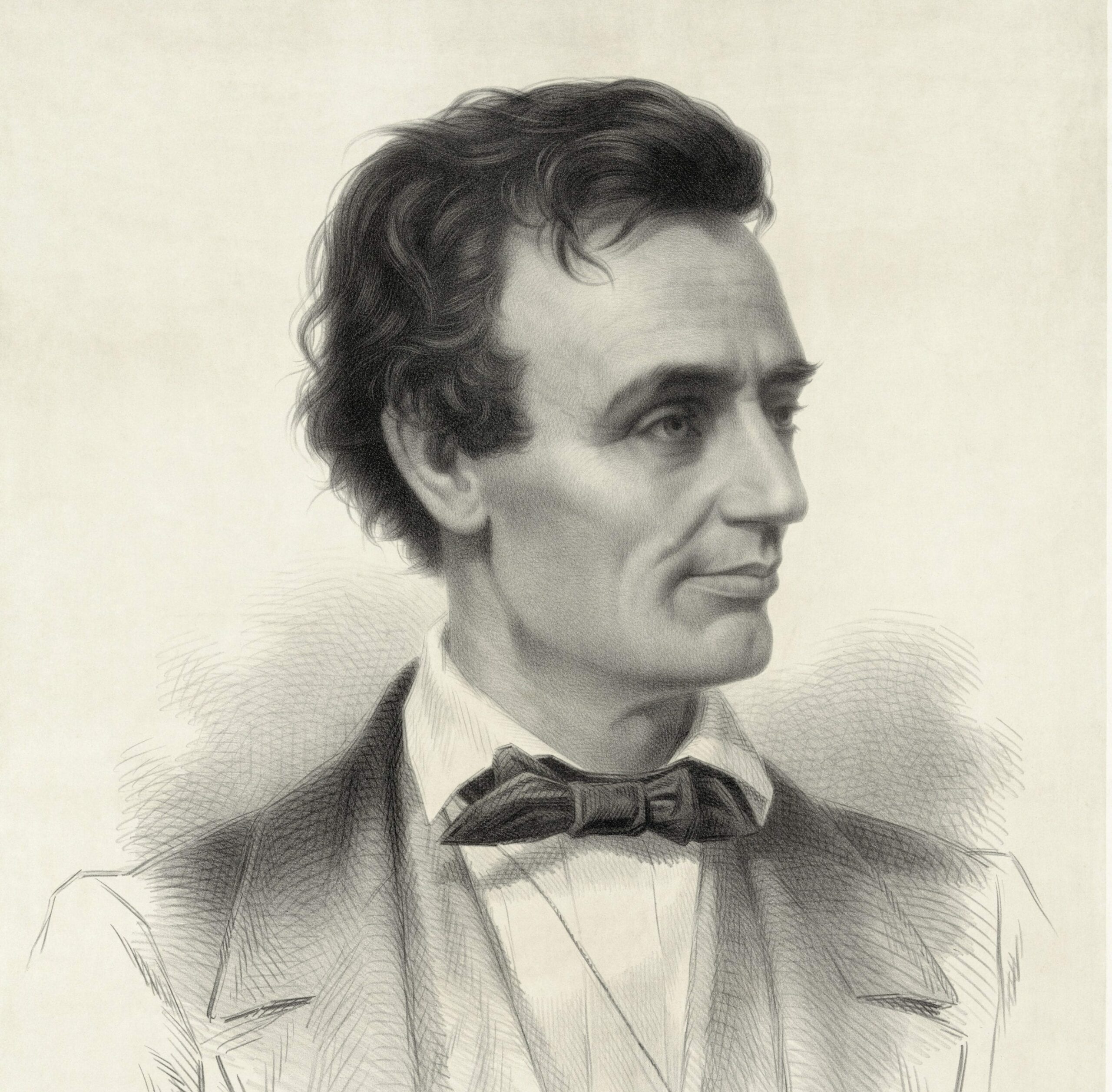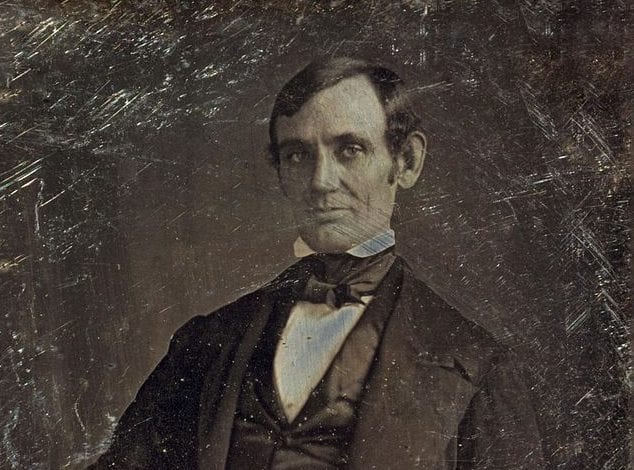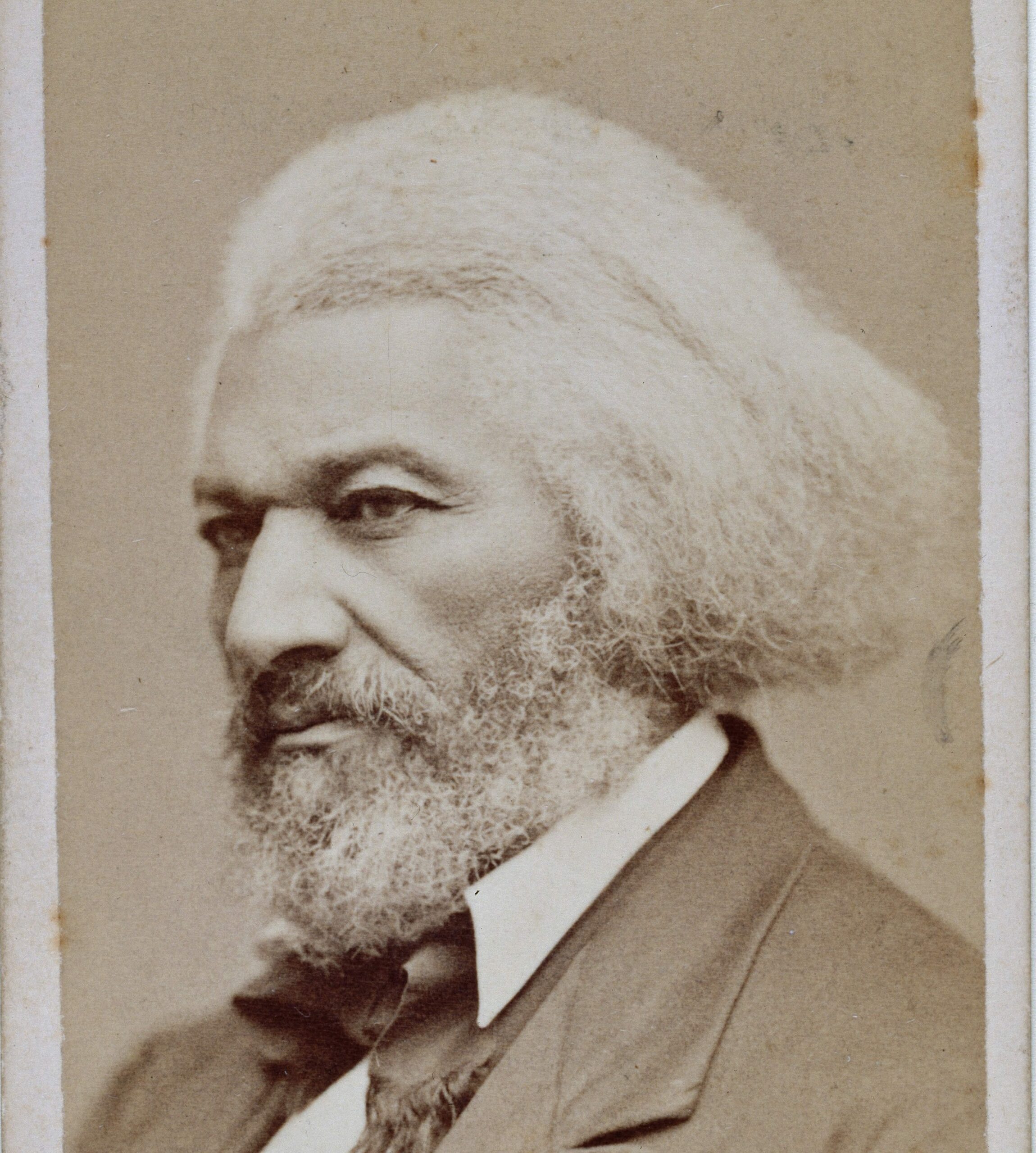
No study questions
No related resources
Under our complex system of government it is the first duty of American statesmen to mark distinctly the dividing line between Federal and Local authority. To do this with accuracy involves inquiry, not only into the powers and duties of the Federal Government under the Constitution, but also into the rights, privileges, and immunities of the people of the Territories, as well as of the States composing the Union. The relative powers and the functions of the Federal and State governments have become well understood and clearly defined by their practical operation and harmonious action for a long series of years; while the disputed question—involving the right of the people of the Territories to govern themselves in respect to their local affairs and internal polity—remains a fruitful source of partisan strife and sectional controversy. The political organization which was formed in 1854, and has assumed the name of the Republican Party, is based on the theory that African slavery, as it exists in this country, is an evil of such magnitude—social, moral, and political—as to justify and require the exertion of the entire power and influence of the Federal Government to the full extent that the Constitution, according to their interpretation, will permit for its ultimate extinction. In the platforms of principles adopted at Philadelphia by the Republican National Convention in 1856, it is affirmed:
That the Constitution confers upon Congress sovereign power over the Territories of the United States for their government, and that in the exercise of this power it is both the right and the duty of Congress to prohibit in the Territories those twin relics of barbarism, polygamy and slavery.
According to the theory of the Republican party there is an irrepressible conflict between freedom and slavery, free labor and slave labor, free States and slave States, which is irreconcilable, and must continue to rage with increasing fury until the one shall become universal by the annihilation of the other. In the language of the most eminent and authoritative expounder of the political faith,
It is an irrepressible conflict between opposing and enduring forces; and it means that the United States must and will, sooner or later, become either a slaveholding nation or entirely a free labor nation. Either the cotton and rice fields of South Carolina, and the sugar plantations of Louisiana, will ultimately be tilled by free labor, and Charleston and New Orleans become marts for legitimate merchandise alone, or else the rye fields and wheat fields of Massachusetts and New York must again by surrendered by their farmers to slave culture and to the production of slaves, and Boston and New York become once more markets for trade in the bodies and souls of men.
In the Illinois canvass of 1858 the same proposition was advocated and defended by the distinguished Republican standard-bearer in these words:
In my opinion it [the slavery agitation] will not cease until a crisis shall have been reached and passed. “A house divided against itself can not stand.” I believe this government can not endure permanently half slave and half free. I do not expect the house to fall, but I do expect it will cease to be divided. It will become all one thing or all the other. Either the opponents of slavery will arrest the further spread of it, and place it where the public mind shall rest in the belief that it is in the course of ultimate extinction, or its advocates will push forward till it shall become alike lawful in all the States—old as well as new, North as well as South.
Thus it will be seen, that under the auspices of a political party, which claims sovereignty in Congress over the subject of slavery, there can be no peace on the slavery question—no truce in the sectional strife—no fraternity between the North and South, so long as this Union remains as our fathers made it—divided into free and slave States, with the right on the part of each to retain slavery so long as it chooses, and to abolish it whenever it pleases.
On the other hand, it would be uncandid to deny that, while the Democratic party is a unit in its irreconcilable opposition to the doctrines and principles of the Republican party, there are radical differences of opinion in respect to the powers and duties of Congress, and the rights and immunities of the people of the Territories under the Federal Constitution, which seriously disturb its harmony and threaten its integrity. These differences of opinion arise from the different interpretations placed on the Constitution by persons who belong to one of the following classes:
First—Those who believe that the Constitution of the United States neither establishes nor prohibits slavery in the United States or Territories beyond the power of the people legally to control it, but “leaves the people thereof perfectly free to form and regulate their domestic institutions in their own way, subject only to the Constitution of the United States.”
Second—Those who believe that the Constitution establishes slavery in the Territories, and withholds from Congress and the Territorial Legislature the power to control it; and who insists that, in the event Territorial Legislature fails to enact the requisite laws for its protection, it becomes the imperative duty of Congress to interpose its authority and furnish such protection.
Third—Those who, whole professing to believe that the Constitution establishes slavery in the Territories beyond the power of Congress or the Territorial Legislature to control it, at the same time protest against the duty of Congress to interfere for its protection; but insist that it is the duty of the Judiciary to protect and maintain slavery in the Territories without any law upon the subject.
By a careful examination of the second and third propositions, it will be seen that the advocates of each agree on the theoretical question, that the Constitution establishes slavery in the Territories, and compels them to have it whether they want it or not; and differ on the practical point, whether a right secured by the Constitution shall be protected by an act of Congress when all other remedies fail. The reason assigned for not protecting by a law a right secured by the Constitution is, that is the duty of the Courts to protect slavery in the Territories without any legislation upon the subject. How the Courts are to afford protection to slaves or any other property, where there is no law providing remedies and imposing penalties and conferring jurisdiction upon the Courts to hear and determine the cases as they arise, remains to be explained.
The acts of Congress, establishing the several Territories of the United States, provide that: “The jurisdiction of the several Courts herein provided for, both appellate and original, and that of the Probate Courts and Justices of the Peace, shall be as limited by law”—meaning such laws as the Territorial Legislatures shall from time to time enact. It will be seen that the juridical tribunals of the Territories have just such jurisdiction, and only such, in respect to the rights of persons and property pertaining to the citizens of the Territory as the Territorial Legislature shall see fit to confer; and consequently, that the Courts can afford protection to persons and property no further than the Legislature shall, by law, confer the jurisdiction, and prescribe the remedies, penalties, and modes of proceeding.
It is difficult to conceive how any person who believes that the Constitution confers the right of protection in the enjoyment of slave property in the Territories, regardless of the wishes of the people and of the action of the Territorial Legislature, can satisfy his conscience and his oath of fidelity to the Constitution in withholding such Congressional legislation as may be essential to the enjoyment of such right under the Constitution. Under this view of the subject it is impossible to resist the conclusion that, if the Constitution does establish slavery in the Territories, beyond the power of the people to control it by law, it is the imperative duty of Congress to supply all the legislation necessary to its protection; and if this proposition is not true, it necessarily results that the Constitution neither establishes nor prohibits slavery anywhere, but leaves the people of each State and Territory entirely free to form and regulate their domestic affairs to suit themselves, without the intervention of Congress or of any other power whatsoever.
But it is urged with great plausibility by those who have entire faith in the soundness of the proposition, that “a Territory is the mere creature of Congress; that the creature can not be clothed with any powers not possessed by the creator; and that Congress, not possessing the power to legislate in respect to African slavery in the Territories, can not delegate to a Territorial Legislature any power which it odes not itself possess.”
This proposition is as plausible as it is fallacious. But the reverse of it is true as a general rule. Congress can not delegate to a Territorial Legislature, or to any other body of men whatsoever, any power which the Constitution has best in Congress. In other words: Every power conferred on Congress by the Constitution must be exercised by Congress in the mode prescribed in the Constitution.
Let us test the correctness of this proposition by reference to the powers of Congress as defined in the Constitution:
The Congress shall have power—
To lay and collect taxes, duties, imposts, and excises, etc;
To borrow money on the credit of the United States;
To regulate commerce with foreign nation, etc;
To establish a uniform rule of naturalization, etc;
To coin money, and regulate the value thereof;
To establish post-offices and post-roads;
To constitute tribunals inferior to the Supreme Court;
To declare war, etc;
To provide and maintain a navy.
This list might be extended so as to embrace all the powers conferred on Congress by the Constitution; but enough has been cited to test the principle. Will it be contended that Congress can delegate any one of these powers to a Territorial Legislature or to any tribunal whatever? Can Congress delegate to Kansas the power to “regulate commerce,” or to Nebraska the power “to establish uniform rules of naturalization,” or to Illinois the power “to coin money and regulate the value thereof,” or to Virginia the power “to establish post-offices and post-roads”?
The mere statement of the question carries with it the emphatic answer, that Congress can not delegate any power which it does possess; but that every power conferred on Congress in the manner prescribed in that instrument.
On the other hand, there are cases in which Congress may establish tribunals and local governments, and invest them with powers which Congress does not possess and cannot exercise under the Constitution. For instance, Congress may establish courts inferior to the Supreme Court, and confer upon them the power to hear and determine cases, and render judgments, or revise or annul the same. In like manner Congress may institute governments for the Territories, composed of an executive, judicial, and legislative department; and may confer upon the Governor all the executive powers and functions of the Territory, without having the right to exercise any one of those powers or functions itself.
Congress may confer upon the judicial department all the judicial powers and functions of the Territory, without having the right to hear and determine a cause, render a judgment, or to revise or annul any decision made by the courts so established by Congress. Congress may also confer upon the legislative department of the Territory certain legislative powers which it can not itself exercise, and only such as Congress can not exercise under the Constitution. The powers which Congress may thus confer but can not exercise, are such as relate to the domestic affairs and internal polity of the Territory, and do not affect the general welfare of the Republic.
This dividing line between Federal and Local authority was familiar to the framers of Constitution. It is clearly defined and distinctly marked on every page of history which records the great events of that immortal struggle between the American Colonies and the British Government, which resulted in the establishment of our national independence. In all their addresses to the Crown, and to the Parliament, and to the people of Great Britain, as well as to the people of America, they averred that as loyal British subjects they deplored the causes which impelled their separation from the parent country. They were strongly and affectionately attached to the Constitution, civil and political institutions and jurisprudence of Great Britain, which they proudly claimed as the birthright of all Englishmen, and desired to transmit them unimpaired as a precious legacy to their posterity. For a long series of years they remonstrated against the violation of their inalienable rights of self-government under the British Constitution, and humbly petitioned for the redress of their grievances.
They acknowledge and affirmed their allegiance to the Crown, their affection for the people, and their devotion to the Constitution of Great Britain; and their only complaint was that they were not permitted to enjoy the rights and privileges of self-government, in the management of their internal affairs and domestic concerns in accordance with the guaranties of that Constitution and the Colonial charters granted by the crown in pursuance of it. They conceded the right of the Imperial government to make all laws and perform all acts concerning the Colonies, which were in their nature Imperial and not Colonial—which affected the general welfare of the Empire, and did not interfere with the “internal polity” of the Colonies. They recognized the right of the Imperial government to declare war and make peace; to coin money and determine its value; to make treaties and conduct intercourse with foreign nations; to regulate commerce between the several colonies, and between each colony and the parent country, and with foreign countries; and in general they recognized the right of the Imperial government of Great Britain to exercise all the powers and authority which, under our Federal Constitution, are delegated by the people of the several States to the Government of the United States.
Recognizing and conceding to the Imperial government all these powers—including the right to institute governments for the Colonies, by granting charters under which the inhabitants residing within the limits of any specified Territory might be organized into a political community, with a government consisting of its appropriate departments, executive, legislative, and judicial; conceding all these powers, the Colonies emphatically denied that the Imperial government had any rightful authority to impose taxes upon them without their consent, or to interfere with their internal polity; claiming that it was the birthright of all Englishmen—inalienable when formed into a political community—to exercise and enjoy all the rights, privileges, and immunities of self-government in respect to all matters and things, which were Local and not General—Internal and not External—Colonial and not Imperial—as fully as if they were inhabitants of England, with a fair representation in Parliament.
This is appears that our fathers of the Revolution were contending, not for Independence in the first instance, but for the inestimable right of Local Self-Government under the British Constitution; the right of every distinct political community—dependent Colonies, Territories, and Provinces, as well as sovereign States—to make their own local laws, from their own domestic institutions, and manage their own internal affairs in their own way, subject only to the Constitution of Great Britain as the paramount law of the Empire.
The government of Great Britain had violated this inalienable right of local self-government by a long series of acts on a great variety of subjects. The first serious point of controversy arose on the slavery question as early as 1699, which continued a fruitful source of irritation until the Revolution, and formed one of the causes for the separation of the colonies from the British Crown.
For more than forty years the Provincial Legislature of Virginia has passed laws for the protection and encouragement of African slavery within her limits. This policy was steadily pursued until the white inhabitants of Virginia became alarmed for their own safety, in view of the numerous and formidable tribes of Indian savages which surrounded and threatened the feeble white settlements, while shiploads of African savages were being daily landed in their midst. In order to check and restrain a policy which seemed to threaten the very existence of the Colony, the Provincial Legislature enacted a law imposing a tax upon every slave who should be brought up into Virginia. The British merchants, who were engaged in the African slave trade, regarding this legislation as injurious to their interests and in violation of their rights, petitioned the King of England and his Majesty’s ministers to annul the obnoxious law and protect them in their right to carry their slaves into Virginia and all other British Colonies which were the common property of the Empire—acquired by the common blood and common treasure—and from which a few adventurers who had settled on the Imperial domain by his Majesty’s sufferance, had no right to exclude them or discriminate against their property by a mere Provincial enactment. Upon a full consideration of the subject the King graciously granted the prayer of the petitioners; and accordingly issued peremptory orders to the Royal Governor of Virginia, and to the Governors of all the other British Colonies in America, forbidding them to sign or approve any Colonial or Provincial enactment injurious to the African Slave Trade, unless such enactment should contain a clause suspending its operation until his Majesty’s pleasure should be made known in the premises.
Judge Tucker, in his Appendix to Blackstone, refers to thirty-one acts of the Provincial Legislature of Virginia, passed at various periods from 1662 to 1772, upon the subject of African slavery, showing conclusively that Virginia always considered this as one of the questions affecting her “internal polity,” over which she, in common with the other colonies, claiming “the right of exclusive legislation in their Provincial Legislature” within their respective limits. Some of these acts, particularly those which were enacted prior to the year 1699, were evidently intended to foster and encourage, as well as to regulate and control African slavery, as one of the domestic institutions of the Colony. The act of 1699, and most of the enactments subsequent to that date, were as obviously designed to restrain and check the growth of the institution with the view of confining it within the limit of the actual necessities of the community, or its ultimate extinction, as might be deemed most conductive to the public interests, by a system of unfriendly legislation, such as imposing a tax on all slaves introduced into the colony, which was increased and renewed from time to time, as occasion required, until the period of the Revolution. Many of these acts never took effect in consequence of the King withholding his assent, even after the Governor had approved the enactment, in cases where it contained a clause suspending its operation until his Majesty’s pleasure should be made known in the premises.
In 1772 the Provincial Legislature of Virginia, after imposing another tax of five per cent on all slaves imported the Colony, petitioned the King to remove all those restraints which inhibited his Majesty’s Governors assenting to such laws as might check so very pernicious a commerce as slavery. Of this petition Judge Tucker says:
The following extract from a petition to the Throne, presented from the House of Burgesses of Virginia, April 1st 1772, will show the sense of the people of Virginia on the subject of slavery at that period.
“The importation of slaves into the colony from the coast of Africa hath long been considered as a trade of great inhumanity; and under its present encouragement we have too much reason to fear will endanger the very existence of your Majesty’s American dominions.”
Mark the ominous words! Virginia tells the King of England in 1772, four years prior to the Declaration of Independence, that his Majesty’s American dominions are in danger: Not because of the Stamp duties—not because of the tax on Tea—not because of his attempts to collect revenue in America! These have since been deemed sufficient to justify rebellion and revolution. But none of these are referred to by Virginia in her address to the Throne—there being another wrong which, in magnitude and enormity, so far exceeded these and all other causes of complaint that the very existence of his Majesty’s American dominions depended upon it! That wrong consisted in forcing African slavery upon a dependent Colony without her consent, and in opposition to the whishes of her own people!
The people of Virginia at that day did not appreciate the force of the argument used by the British merchants, who were engaged in the African slave trade, and which was afterward indorsed, at least by implication, by the King and his Ministers; that the Colonies were the common property of the Empire—acquired by the common blood and treasure—and therefore all British subjects had the right to carry their slaves into the Colonies and hold them in defiance of the local law and in contempt of the wishes and safety of the Colonies.
The people of Virginia not being convinced by this process of reasoning, still adhered to the doctrine which they held in common with their sister Colonies, that it was the birthright of all freemen—inalienable when formed into political communities—to exercise exclusive legislation in respect to all matters pertaining to their internal polity—slavery not excepted; and rather than surrender this great right they were prepared to withdrawal their allegiance to the crown.
Again referring to this petition to the King, the same learned Judge adds:
This petition produced no effect, as appears from the first clause of our [Virginia] Constitution, where, among other acts of misrule, the inhuman use of the Royal negative refusing us [the people of Virginia] permission to exclude slavery from us by law, is enumerated among the reasons for separating from Great Britain.
This clause in the constitution of Virginia, referring to the inhuman use of the Royal negative, in refusing the Colony of Virginia permission to exclude slavery from her limits by law as one of the reasons for separation from Great Britain, was adopted on the 12th day of June, 1776, three weeks and one day previous to the Declaration of Independence by the Continental Congress; and after remaining in force as part of the Constitution for a period of fifty-four years, was re-adopted, without alteration, by the Convention which framed the new Constitution in 1830, and then ratified by the people as a part of the new Constitution; and was again adopted by the Convention which amended the Constitution in 1850, and again ratified by the people as a part of the amended Constitution, and at this day remains a portion of the fundamental law of Virginia proclaiming to the world and to posterity that one of the reasons for separating from Great Britain was the “the inhuman use of the Royal negative in refusing us [the Colony of Virginia] permission to exclude slavery from us by law”!
The legislation of Virginia on this subject may be taken as a fair sample of the legislative enactments of each of the thirteen Colonies, showing conclusively that slavery was regarded by them all as a domestic question to be regulated by them all as a domestic question to be regulated and determined by each Colony to suit itself, without the intervention of the British Parliament or “the inhuman use of the Royal negative.” Each Colony passed a series of enactments, beginning at an early period its history and running down to the commencement of the Revolution, either protecting regulating, or restraining African slavery within its respective limits and in accordance with their wishes and supposed interests. North and South Carolina, following the example of Virginia, at first encouraged the introduction of slaves, until the number increased beyond their wants and necessities, when they attempted to check and restrain the further growth of the institution, by imposing a high rate of taxation upon all slaves which should be brought into those Colonies upon all slaves which should be brought into those Colonies; and finally, in 1764, South Carolina passed a law imposing a penalty of one hundred pounds (or five hundred dollars) for every negro slave subsequently introduced into that Colony.
The Colony of Georgia was originally founded on strict antislavery principles, and rigidly maintained this policy for a series of years, until the inhabitants became convinced by experience, that, with their climate and productions, slave labor, if not essential to their existence, would prove beneficial and useful to their material interests. Maryland and Delaware protected and regulated African slavery as one of their domestic institutions. Pennsylvania, under the advice of William Penn, substituted fourteen years service and perpetual adscript to the soil for hereditary slavery, and attempted to legislate, not for the total abolition of slavery, and attempted to legislate, not for the total abolition of slavery, but for the sanctity of marriage among slaves, and for their personal security. New Jersey, New York, and Connecticut, recognized African slavery as a domestic institution lawfully existing within their respective limits, and passed the requisite laws for its control and regulation.
Rhode Island provided by law that no slave should serve more than ten years, at the end of which time he was to be set free; and if the master should refuse to let him go free, or sold him elsewhere for a longer period of service, he was subject to a penalty of forty pounds, which was supposed at the period to be nearly double the value of the slave.
Massachusetts imposed heavy taxes upon all slaves brought into the Colony, and provided in some instances for sending the slaves back to their native land; and finally prohibited the introduction of any more slaves into the Colony under any circumstances.
When New Hampshire passed laws which were designed to prevent the introduction of any more slaves, the British Cabinet issued the following order to Governor Wentworth: “You are not to give your assent to, or pass any law imposing duties upon Negroes imported into New Hampshire.”
While the legislation of the several Colonies exhibits dissimilarity of views, founded on a diversity of interests, on the merits and policy of slavery, it shows conclusively that they all regarded it as a domestic question affecting their internal polity in respect to which they were entitled to a full and exclusive power of legislation in the several Provincial Legislatures. For a few years immediately preceding the American Revolution the African Slave Trade was encouraged and stimulated by the British Government and carried on with more vigor by the English merchants than at any other period in the history of the Colonies; and this fact, taken in connection with extraordinary claim asserted in the Memorable Preamble to act repealing the stamp duties, that “Parliament possessed the right to bind the Colonies in all cases whatsoever,” not only in respect to all matters affecting the general welfare of the empire, but also in regard to the domestic relations and internal polity of the Colonies produced a powerful impression upon the minds of the colonists, and imparted peculiar prominence to the principle involved in the controversy.
Hence the enactments by the several Colonial Legislatures calculated and designed to restrain and prevent the increase of slaves; and, on the other hand, the orders issued by the Crown instructing the Colonial Governors not to sign or permit any legislative enactment prejudicial or injurious to the African Slave Trade, unless such enactment should contain a clause spending its operation until the royal pleasure should be made known in the premises; or, in other words, until the King should have an opportunity of annulling the acts of the Colonial Legislatures by the “inhuman use of the Royal negative.”
Thus the policy of the Colonies on the slavery question had assumed a direct antagonism to that of the British Government, and this antagonism not only added to the importance of the principle of local self-government in the Colonies, but produced a general concurrence of opinion and action in respect to the question of slavery in the proceedings of the Continental Congress, which assembled at Philadelphia for the first time on the 5th of September, 1774.
On the 14th of October the Congress adopted a Bill of Rights for the Colonies, in the form of a series of resolutions, in which, after conceding to the British Government the power to regulate commerce and do such other things as affected the general welfare of the empire without interfering with the internal polity of the Colonies, they declared “That they are entitled to a free and exclusive power in their several provincial Legislatures, where their right of representation can alone be preserved, in all cases of taxation and internal polity.” Having thus defined the principle for which they were contending, the Congress proceeded to adopt the following “Peaceful Measures,” which they still hoped would be sufficient to induce compliance with their just and reasonable demands. These “Peaceful Measures” consisted of addresses to the King, to the Parliament, and to the people of Great Britain, together with an Association of Non-Intercourse to be observed and maintained so long as their grievances should remain unredressed.
The second article of this Association, which was adopted without opposition and signed by the delegates from all the Colonies, was in these words:
That we will neither import nor purchase any slave imported after the first day of December next; after which time we will wholly discontinue the Slave-Trade, and will neither be concerned in it ourselves, nor will we hire our vessels, nor sell our commodities or manufactures to those who are engaged in it.
This Bill of Rights, together with these articles of association, were subsequently submitted to and adopted by each of the thirteen Colonies in their respective Provincial Legislatures.
Thus was distinctly formed between the Colonies and the parent country that issue upon which the Declaration of Independence was founded and the battles of the Revolution were fought. It involved the specific claim on the part of the Colonies denied by the King and Parliament to the exclusive right of legislation touching all local and internal concerns, slavery included. This being the principle involved in the contest, a majority of the Colonies refused to permit their Delegates to sign the Declaration of Independence except upon the distinct condition and express reservation to each Colony of the exclusive right to manage and control its local concerns and police regulations without the intervention of any general Congress which might be established for the United Colonies.
Let us cite one of these reservations as a specimen of all, showing conclusively that they were fighting for the inalienable right of local self-government, with the clear understanding that when they had succeeded in throwing off the despotism of the British Parliament, no Congressional despotism was to be substituted for it:
We, the Delegates of Maryland, in convention assembled, do declare that the King of Great Britain has violated his compact with this people, and that they owe no allegiance to him. We have therefore thought it just and necessary to empower our Deputies in Congress to join with a majority of the United Colonies in declaring them free and independent States, in framing such further confederation between them, in making foreign alliances, and in adopting such other measures as shall be judged necessary for the preservation of their liberties:
Provided, the sole and exclusive right of regulating the internal polity and government of this Colony be reserved to the people thereof.We have also thought proper to call a new convention for the purpose of establishing a government in this Colony.
No ambitious views, no desire of independence, induced the people of Maryland to form an union with the other Colonies. To procure an exemption from Parliamentary taxation, and to continue to the Legislatures of these Colonies the sole and exclusive right of regulating their Internal Polity, was our original and only motive. To maintain inviolate our liberties, and to transmit them unimpaired to posterity, was out duty and first wish; our next, to continue connected with and dependent on Great Britain. For the truth of these assertions we appeal to the Almighty Being who is emphatically styled the Searcher of hearts, and from whose omniscience none is concealed. Relying on his Divine protection and assistance, and trusting to the justice of our cause, we exhort and conjure every virtuous citizen to join cordially in defense of our common rights, and in maintenance of the freedom of this and her sister Colonies.
The first Plan of Federal Government adopted for the United States was formed during the Revolution, and is usually known as “The Articles of Confederation.” By these Articles it was provided that “Each State retains its Sovereignty, Freedom, and Independence, and every power, jurisdiction, and right which is not by this Confederation expressly delegated to the United States in Congress assembled.”
At the time the Articles of Confederation were adopted July 9, 1778 the United States held no lands or territory in common. The entire country including all the waste and unappropriated lands embraced within or pertaining to the Confederacy, belonged and was the property of the several States within whose limits the same was situated.
On the 6th day of September, 1780, Congress “recommended to the several States in the Union having claims to waste and unappropriated lands in the Western country, a liberal cession to the United States of a portion of their respective claims for the common benefit of the Union.”
On the 20th day of October, 1783, the Legislature of Virginia passed an act authorizing the Delegates in Congress from that State to convey to the United States “the territory or tract of country within the limits of the Virginia Charter, lying and bearing to the Northwest of the River Ohio “which grant was to be made upon the “condition that the territory so ceded shall be laid out and formed into States;” and that “the States so formed shall be distinct republican States, and admitted members of the Federal Union, having the same rights of Sovereignty, Freedom, and Independence as the other States.”
On the 1st day of March, 1784, Thomas Jefferson and his colleagues in Congress executed the deed of cession in pursuance of the act of the Virginia Legislature, which was accepted and ordered to “be recorded and enrolled among the acts of the United States in Congress assembled.” This was the first territory ever acquired, held, or owned by the United States. On the same day of the deed of cession Mr. Jefferson, as chairman of a committee which had been appointed, consisting of Mr. Jefferson of Virginia, Mr. Chase of Maryland, and Mr. Howell of Rhode Island, submitted to Congress “a plan for the temporary government of the territory ceded or to be ceded by the individual States to the United States.”
It is important that this Jeffersonian Plan of government for the Territories should be carefully considered for many obvious reasons. It was the first plan of government for the Territories ever adopted in the United States. It was drawn by the author of the Declaration of Independence, and revised and adopted by those who shaped the issues which produced the Revolution, and formed the foundations upon which our whole American system of government rests. It was not intended to be either local or temporary in its character, but was designed to apply to all “territory ceded or to be ceded,” and to be universal in its application and eternal in its duration, wherever and whenever we might have territory requiring a government. It ignored the right of Congress to legislate for the people of the Territories without their consent, and recognized the inalienable right of the people of the Territories, when organized into political communities, to govern themselves in respect to their local concerns and internal polity. It was adopted by the Congress of the Confederation on the 23rd day of April, 1784, and stood upon the Statute Book as a general and permanent plan for the government of all territory which we then owned or should subsequently acquire, with a provision declaring it to be a “Charter of Compact,” and that its provisions should “stand as fundamental conditions between the thirteen original States and those newly described, unalterable but by the joint consent of the United States in Congress assembled, and of the particular State within which such alteration is proposed to be made.” Thus this Jeffersonian Plan for the government of the Territories this “Charter of Compact” “these fundamental conditions,” which were declared to be “unalterable” without the consent of the people of “the particular State [Territory] within which such alteration is proposed to be made,” stood on the Statute Book when the Convention assembled at Philadelphia in 1787 and proceeded to form the Constitution of the United States.
Now let us examine the main provisions of the Jeffersonian Plan:
First. That the territory ceded or to be ceded by the individual States to the United States, whenever the same shall have been purchased of the Indian inhabitants and offered for sale by the United States, shall be formed into additional States, etc., etc.
The Plan proceeds to designate the boundaries and territorial extent of the proposed “additional States,” and then provides:
Second. That the settlers within the territory so to be purchased and offered for sale shall, either on their own petition or on the order of Congress, receive authority from them, with appointments of time and place, for their free males of full age to meet together for the purpose of establishing a temporary government to adopt the Constitution and laws of any one of these States [the original States], so that such laws nevertheless shall be subject to alteration by their ordinary legislature; and to erect, subject to like alteration, counties or townships for the election of members for their Legislature.
Having thus provided a mode by which the first inhabitants or settlers of the Territory may assemble together and choose for themselves the Constitution and laws of some one of the original thirteen States, and declare the same in force for the government of their Territory temporarily, with the right on the part of the people to change the same, through their local Legislature, as they may see proper, the Plan then proceeds to point out the mode in which they may establish for themselves “a permanent Constitution and government,” whenever they shall have twenty thousand inhabitants, as follows:
Third. That such temporary government only shall continue in force in any State until it shall have acquired twenty thousand free inhabitants, when, giving due proof thereof to Congress, they shall receive from them authority, with appointments of time and place, to call a Convention of Representatives to establish a permanent Constitution and government for themselves.
Having thus provided for the first settlers “a temporary government” in these “additional States,” and for “a permanent Constitution and government” when they shall have acquired twenty thousand inhabitants, the Plan contemplates that they shall continue to govern themselves as States, having, as provided in the Virginia deed of cession, “the same rights of sovereignty, freedom, and independence,” in respect to their domestic affairs and internal polity, “as the other States,” until they shall have a population equal to the least numerous of the original thirteen States; and in the mean time shall keep a sitting member in Congress, with a right of debating but not of voting, when they shall be admitted into the Union on an equal footing with the other States, as follows:
Fourth. That whenever any of the said States shall have of free inhabitants as many as shall then be in any one of the least numerous of the thirteen original States, such State shall be admitted by its delegates into the Congress of the United States on an equal footing with the said original States…
And
Until such admission by their delegates into Congress any of the said States, after their establishment of their temporary government, shall have authority to keep a sitting member in Congress, with the right of debating, but not of voting.
Attached to the provision which appears in this paper under the “third” head is a proviso, containing five propositions, which, when agreed to and accepted by the people of said additional States, were to “be formed into a charter of compact,” and to remain forever “unalterable,” except by the consent of such States as well as of the United states to wit:
Provided that both the temporary and permanent governments be established on these principles as their basis:
1st. That they shall forever remain a part of the United States of America.2nd. That in their persons, property, and territory they shall be subject to the government of the United States in Congress assembled, and to the Articles of Confederation in all those cases in which the original States shall be so subject.
3rd. That they shall be subject to pay a part of the federal debts contracted, or to be contracted to be apportioned on them by Congress according to the same common rule and measure by which apportionments thereof shall be made on the other States.
4th. That their respective governments shall be in republican form, and shall admit not person to be a citizen who holds any hereditary title.
The fifth article, which related to the prohibition of slavery after the year 1800, having been rejected by Congress, never became a part of the Jeffersonian Plan of Government for the Territories, as adopted April 23, 1784.
The concluding paragraph of this Plan of Government, which emphatically ignores the right of Congress to bind the people of the Territories without their consent, and recognizes the people therein as the true source of all legitimate power in respect to their internal polity, is in these words:
That all the preceding articles shall be formed into a charter of compact, shall be duly executed by the President of the United States, in Congress assembled, under his hand and the seal of the United States, shall be promulgated, and shall stand as fundamental conditions between the thirteen original States and those newly described, unalterable but by the joint consent of the United States in Congress assembled, and of the particular State within which such alteration is proposed to be made.
This Jeffersonian Plan of Government embodies and carries out the ideas and principles of the fathers of the Revolution that the people of every separate political community (dependent Colonies, Provinces, and Territories as well as sovereign States) have an inalienable right to govern themselves in respect to their internal polity, and repudiates the dogma of the British Ministry, and the Tories of that day that all Colonies, Provinces, and Territories were the property of the Empire, acquired with the common blood and common treasure, and that the inhabitants thereof have no rights, privileges, or immunities except such as the Imperial government should graciously condescend to bestow upon them. This Plan recognizes by law and irrevocable “compact” the existence of two distinct classes of States under our American system of government the one being members of the Union, and consisting of the original thirteen and such other States, having the requisite population, as Congress should admit into the Federal Union, with an equal vote in the management of Federal affairs as well as the exclusive power in regard to their internal polity respectively the other, not having the requisite population for admission into the Union, could have no vote or agency in the control of the Federal relations, but possessed the same exclusive power over their domestic affairs and internal policy respectively as the original States, with the right, while they have less than twenty thousand inhabitants, to choose for their government the Constitution and laws of any one of the original States; and when they should have more than twenty thousand, but less than the number required to entitle them to admission into the Union, they were authorized to form for themselves “a permanent Constitution and government”; and in either case they were entitled to keep a delegate in Congress with the right of debating, but not of voting. This “Charter of Compact,” with its “fundamental conditions,” which were declared to be “unalterable” without “the joint consent” of the people interested in them, as well as of the United States, thus stood on the statute book unrepealed and irrepealable furnishing a complete system of government for all “the territory ceded or to be ceded” to the United States, without any other legislation upon the subject, when, on the 14th day of May, 1787, the Federal Convention assembled at Philadelphia and proceeded to form the Constitution under which we now live. Thus it will be seen that the dividing line between Federal and Local authority, in respect to the rights of those political communities which, for the sake of convenience and in contradistinction to the States represented in Congress, we now call Territories, but which were then known as “States,” or “new States,” was so distinctly marked at that day that no intelligent man could fail to perceive it.
It is true that the government of the Confederation had proved totally inadequate to the fulfillment of the ends for which it was devised, not because of the relations between the Territories, or new States, and the United States, but in consequence of having no power to enforce its decrees on the Federal questions which were clearly within the scope of its expressly delegated powers. The radical defects in the Articles of Confederation were found to consist in the fact that it was a mere league between sovereign States, and not a Federal Government with its appropriate departments Executive, Legislative, and Judicial each clothed with authority to perform and carry into effect its own particular functions. The Confederation having no power to enforce compliance with its resolves, “the consequence was, that though in theory the Resolutions of Congress were equivalent to laws, yet in practice they were found to be mere recommendations, which the States, like other sovereignties, observed or disregarded according to their own good-will and gracious pleasure.” Congress could not impose duties, collect taxes, raise armies, or do any other act essential to the existence of government, without the voluntary consent and co-operation of each of the States. Congress could resolve, but could not carry its resolutions into effect could recommend to the States to provide a revenue for the necessities of the Federal Government, but could not use the means necessary to the collection of the revenue when the States failed to comply could recommend to the States to provide an army for the general defense, and apportion among the States their respective quotas, but could not enlist the men and order them into the Federal service. For these reasons a Federal Government, with its appropriate departments, acting directly upon the individual citizens, with authority to enforce its decrees to the extent of its delegated powers, and not dependent upon the voluntary action of the several States in their corporate capacity, became indispensable as a substitute for the government of the Confederation.
In the formation of the Constitution of the United States the Federal Convention took the British Constitution, as interpreted and expounded by the Colonies during their controversy with Great Britain, for their model making such modifications in its structure and principles as the change in our condition had rendered necessary. They intrusted the Executive functions to a President in the place of a King; the Legislative functions to a Congress composed of a Senate and House of Representatives. In lieu of the Parliament consisting of the Houses of Lords and Commons; and the Judicial functions to a Supreme Court and such inferior Courts as Congress should from time to time ordain and establish.
Having thus divided the powers of government into the three appropriate departments, with which they had always been familiar, they proceeded to confer upon the Federal Government substantially the same powers which they as Colonies had been willing to concede to the British Government, and to reserve to the States and to the people the same rights and privileges which they as Colonies had denied to the British Government during the entire struggle which terminated in our Independence, and which they had claimed for themselves and their posterity as the birthright of all freemen, inalienable when organized into political communities, and to be enjoyed and exercised by Colonies, Territories, and Provinces as fully and completely as by sovereign States. Thus it will be seen that there is no organic feature or fundamental principle embodied in the Constitution of the United States which had not been familiar to the people of the Colonies from the period of their earliest settlement, and which had not been repeatedly asserted by them when denied by Great Britain during the whole period of their colonial history.
Let us pause at this point for a moment, and inquire whether it be just to those illustrious patriots and sages who formed the Constitution of the United States, to assume that they intended to confer upon Congress that unlimited and arbitrary power over the people of the American Territories, which they had resisted with their blood when claimed by the British Parliament over British Colonies in America? Did they confer upon Congress the right to bind the people of the American Territories in all cases whatsoever, after having fought the battles of the Revolution against a “Preamble” declaring the right of Parliament “to bind the Colonies in all cases whatsoever?”
If, as they contended before the Revolution, it was the birthright of all Englishmen, inalienable when formed into political communities, to exercise exclusive power of legislation in their local legislatures in respect to all things affecting their internal slavery not excepted did not the same right, after the Revolution, and by virtue of it, become the birthright of all Americans, in like manner inalienable when organized into political communities no matter by what name, whether Colonies, Territories, Provinces, or new States?
Names often deceive persons in respect to the nature and substance of things. A signal instance of this kind is to be found in that clause of the Constitution which says:
Congress shall have the power to dispose of, and make all needful rules and regulations respecting the territory or other property belonging to the United States.
This being the only clause of the Constitution in which the word “territory” appears, that fact alone has doubtless led many persons to suppose that the right of Congress to establish temporary governments for the Territories, in the sense in which the word is now used, must be derived from it, overlooking the important and controlling facts that at the time the Constitution was formed the word “territory” had never been used or understood to designate a political community or government of any kind in any law, compact, deed of cession, or public document; but had invariably been used either in its geographical sense to describe the superficial area of a State or district of country, as in the Virginia deed of cession of the “territory or tract of country” northwest of the River Ohio; or as meaning land in its character as property, in which later sense it appears in the clause of the Constitution referred to, when providing for the disposition of the “territory or other property belonging to the United States.” These facts, taken in connection with the kindred one that during the whole period of the Confederation and the formation of the Constitution the temporary governments which we now call “Territories,” were invariably referred to in the deeds of cession, laws, compacts, plans of government, resolutions of Congress, public records, and authentic documents as “States,” or “new States,” conclusively show that the words “territory and other property” in the Constitution were used to designate the unappropriated lands and other property which the United States owned, and not the people who might become residents on those lands, and be organized into political communities after the United States had parted with their title.
It is from this clause of the Constitution alone that Congress derives the power to provide for the surveys and sale of the public lands and all other property belonging to the United States, not only in the Territories, but also in the several States of the Union. But for this provision Congress would have no power to authorize the sale of the public lands, military sites, old ships, cannon, muskets, or other property, real or personal, which belong to the United States and are no longer needed for any public purpose. It refers exclusively to property in contradistinction to persons and communities. It confers the same power “to make all needful rules and regulations” in the States as in the Territories, and extends wherever there may be any land or other property belonging to the United States to be regulated or disposed of; but does not authorize Congress to control or interfere with the domestic institutions and internal polity of the people (either in the States or the Territories) who may reside upon lands which the United States once owned. Such a power, had it been vested in Congress, would annihilate the sovereignty and freedom of the States as well as the great principle of self-government in the Territories, wherever the United States happen to own a portion of the public lands within their respective limits, as, at present, in the States of Alabama, Florida, Mississippi, Louisiana, Arkansas, Missouri, Illinois, Indiana, Ohio, Michigan, Wisconsin, Iowa, Minnesota, California, and Oregon, and in the Territories of Washington, Nebraska, Kansas, Utah, and New Mexico. The idea is repugnant to the spirit and genius of our complex system of government, because it effectually blots out the dividing line between Federal and Local authority which forms an essential barrier for the defense of the independence of the States and the liberties of the people against Federal invasion. With one anomalous exception, all the powers conferred on Congress and Federal, and not Municipal, in their character affecting the general welfare of the whole country without interfering with the internal polity of the people and can be carried into effect by laws which apply alike to States and Territories. The exception, being in derogation of one of the fundamental principles of our political system (because it authorizes the Federal Government to control the municipal affairs and internal polity of the people in certain specified, limited localities), was not left to vague inference or loose construction, nor expressed in dubious or equivocal language; but is found plainly written in that section of the Constitution which says:
Congress shall have power to exercise exclusive legislation in all cases whatsoever, over such district (not exceeding ten miles square) as may, by cession of particular States, and the acceptance of Congress, become the seat of the government of the United States, and to exercise like authority over all places purchased by the consent of the Legislature of the State in which the same shall be, for the erection of forts, magazines, arsenals, dock-yards, and other needful buildings
No such power “to exercise legislation in all cases whatsoever,” nor indeed any legislation in any case whatsoever, is conferred on Congress in respect to the municipal affairs and internal polity, either of the States or of the Territories. On the contrary, after the Constitution had been finally adopted, with its Federal powers delegated, enumerated, and defined, in order to guard in all future time against any possible infringement of the reserved rights of the States, or of the people, an amendment was incorporated into the Constitution which marks the diving line between Federal and Local authority so directly and indelibly that no lapse of time, no partisan prejudice, no sectional aggrandizement, no frenzied fanaticism can efface it. The amendment is in these words:
The powers not delegated to the United States by the Constitution, nor prohibited by it to the States, are reserved to the States respectively, or to the people.
This view of the subject is confirmed, if indeed any corroborative evidence is required, by reference to the proceedings and debate of the Federal Convention, as reported by Mr. Madison. On the 18th of August, after a series of resolutions had been adopted as the basis of the proposed Constitution and referred to the Committee of Detail for the purpose of being put in proper form, the record says:
Mr. Madison submitted, in order to be referred to the Committee of Detail, the following powers, as proper to be added to those of the General Legislature (Congress):
To dispose of the unappropriated lands of the United States.
To institute temporary governments for the new States arising therein.
To regulate affairs with the Indians, as well within as without the limits of the United States.
To exercise exclusively legislative authority at the seat of the general government, and over a district around the same not exceeding—square miles, the consent of the Legislature of the State or States comprising the same being first obtained.
Here we find the original and rough draft of these several powers as they now exist, in their revised form, in the Constitution. The provision empowering Congress “to dispose of the unappropriated lands of the United States” was modified and enlarged so as to include “other property belonging to the United States,” and to authorize Congress to “make all needful rules and regulations” for the preservation, management, and sale of the same.
The provision empowering Congress “to institute temporary governments for the new States arising in the unappropriated lands of the United States,” taken in connection with the one empowering Congress “to exercise exclusively legislative authority at the seat of the general government, and over a district of country around the same,” clearly shows the difference in the extent and nature of the powers intended to be conferred in the new States or Territories on the one hand, and in the District of Columbia on the other. In the one case it was proposed to authorize Congress “to institute temporary governments for the new States,” or Territories, as they are now called, just as our Revolutionary fathers recognized the right of the British Crown to institute local governments for the Colonies, by issuing charters, under which the people of the Colonies were “entitled (according to the Bill of Rights adopted by the Continental Congress) to a free and exclusive power of legislation, in their several Provincial Legislatures, where their right of representation can alone be preserved, in all cases of taxation and internal polity”; while, in the other case, it was proposed to authorize Congress to exercise, exclusively, legislative authority over the municipal and internal polity of the people residing within the district which should be ceded for that purpose as the seat of the general government.
Each of the provisions was modified and perfected by the Committees of Detail and Revision, as will appear by comparing them with the corresponding clauses as finally incorporated into the Constitution. The provision to authorize Congress to institute temporary governments for the new States or Territories, and to provide for their admission into the Union, appears in the Constitution in this form.
New States may be admitted by the Congress into this Union.
The power to admit “new States, and “to make all laws which shall be necessary and proper” to that end, may fairly be construed to include the right to institute temporary governments for such new States or Territories, the same as Great Britain could rightfully institute similar governments for the Colonies; but certainly not to authorize Congress to legislate in respect tot heir municipal affairs and internal concerns, without violating that great fundamental principle in defense of which the battles of the Revolution were fought.
If judicial authority were deemed necessary to give force to principles so eminently just in themselves, and which form the basis of our entire political system, such authority may be found in the opinion of the Supreme Court of the United States in the Dred Scott case. In that case the Court say:
This brings us to examine by what provision of the Constitution the present Federal Government, under its delegated and restricted powers, is authorized to acquire territory outside the original limits of the United States, and what powers it may exercise therein over the person or property of a citizen of the United State, while it remains a Territory, and until it shall be admitted as one of the States of the Union.
There is certainly no power given by the Constitution to the Federal Government to establish or maintain Colonies, bordering on the United States or at a distance, to be ruled and governed at its own pleasure; nor to enlarge its territorial limits in any way except by the admission of new states.
The power to expand the territory of the United States by the admission of the States is plainly given; and in the construction of this power by all the departments of the Government, it has been held to authorize the acquisition of territory, not fit for admission at the time, but to be admitted as soon as its population and situation would entitle it to admission. It is acquired to become a State, and not to be held as a Colony and governed by Congress with absolute authority; and as the propriety of admitting a new State is committed to the sounds discretion of Congress, the power to acquire territory for that purpose, to be held by the United States until it is in a suitable condition to become a State upon an equal footing with the other States, must rest upon the same discretion.
Having determined the question that the power to acquire territory for the purpose of enlarging our territorial limits and increasing the number of States is included within the power to admit new States and conferred by the same clause of the Constitution, the Court proceed to say that “the power to acquire necessarily carries with it the power to preserve and apply to the purposes for which it was acquired.” And again, referring to a former decision of the same Court in respect to the power of Congress to institute governments for the Territories, the Court say:
The power stands firmly on the latter alternative put by the Court—that is, as “the inevitable consequence of the right to acquire territory.”
The power to acquire territory, as well as the right, in the language of Mr. Madison, “to institute temporary governments for the new States arising therein” (or Territorial governments, as they are now called), having been traced to that provision of the Constitution which provided for the admission of “new States,” the Court proceed to consider the nature and extent of the power of Congress over people of the Territories:
All we mean to say on this point is, that, as there is no express regulation in the Constitution defining the power which the general Government may exercise over the person or property of a citizen in a Territory thus acquired, the Court must necessarily look to the provisions and principles of the Constitution, and its distribution of powers, for the rules and principles by which its decision must be governed.
Taking this rule to guide us, it may be fairly assumed that citizens of the United States, who emigrate to a Territory belonging to the people of the United States, can not be ruled as mere colonists, dependent upon the will of the general Government, and to be governed by any laws it may think proper to impose. The Territory being a part of the United States, the Government and the citizen both enter it under the authority of the Constitution, with their respective rights defined and marked out; and the Federal Government can exercise no power over his person or property beyond what that instrument confers, nor lawfully deny any right which it has reserved.
Hence, inasmuch as the Constitution has conferred on the Federal Government no right to interfere with the property, domestic relations, police regulation, or internal polity of the people of the Territories, it necessarily follows, under the authority of the Court, that Congress can rightfully exercise no such power over the people of the Territories. For this reason alone, the Supreme Court were authorized and compelled to pronounce the eighth section of the Act approved March 6, 1820 (commonly called the Missouri Compromise), inoperative and void—there being no power delegated to Congress in the Constitution authorizing Congress to prohibit slavery in the Territories.
In the course of the discussion of this question the Court gave an elaborate exposition of the structure, principles, and powers of the Federal Government; showing that it possesses no powers except those which are delegated, enumerated, and defined in the Constitution; and that all other powers are either prohibited altogether or are reserved to the States, or to the people. In order to show that the prohibited, as well as the delegated powers are enumerated and defined in the Constitution, the court enumerated certain powers which can not be exercised either by Congress or by the Territorial Legislature, or by any other authority whatever, for the simple reason that they are forbidden by the Constitution.
Some persons who have not examined critically the opinion of the Court in this respect have been introduced to believe that the slavery question was included in this class of prohibited powers, and that the Court had decided in the Dred Scott case that the Territorial Legislature could not legislate in respect to slave property the same as all other property in the Territories. A few extracts from the opinion of the Court will correct this error, and show clearly the class of powers to which the Court referred, as being forbidden alike to the Federal Government, to the States, and to the Territories. The Court say:
A reference to a few of the provisions of the Constitution will illustrate this proposition. For example, no one, we presume, will content that Congress can make any law in a Territory respecting the establishment of religion, or the free exercise thereof, or abridging the freedom of speech or of the press, or the right of the people of the Territory peaceably to assemble, and to petition the Government for the redress of grievances.
Nor can Congress deny to the people the right to keep and bear arms, nor the right to trial by jury, nor compel any one to be a witness against himself in a criminal proceeding . So too, it will hardly be contented that Congress could by law quarter a soldier in a house in a Territory without the consent of the owner in a time of peace; nor in time of war but in a manner prescribed by law. Nor could they by law forfeit the property of a citizen in a Territory who was convicted of treason, for a longer period than the life of the person convicted, nor take private property for public use without just compensation.
The powers over persons and property, of which we speak, are not only not granted to Congress, but are in express terms denied, and they are forbidden to exercise them. And this prohibition is not confined to the States, but the words are general, and extend to the whole territory over which the Constitution gives it power to legislate, including those portions of it remaining under Territorial Governments, as well as that covered by States.
It is a total absence of power, everywhere within the dominion of the United States, and places the citizens of a Territory, so far as these rights are concerned, on the same footing with citizens of the States, and guards them as firmly and plainly against any inroads which the general Government might attempt, under the plea of implied or incidental powers. And if Congress itself can not do this—if it is beyond the powers conferred on the Federal Government—it will be admitted, we presume, that it could not authorize a Territorial government to exercise them. It could confer no power on any local government to exercise them. It could confer no power on any local government, established by its authority, to violate the provision of the Constitution.
It this sweeping prohibition—this is just but exorable restriction upon the powers of government—shall ever be held to include the slavery question, thus negativing the right of the people of the States and Territories, as well as the Federal Government, to control it by law (and it will be observed that in the opinion of the Court “the citizens of a Territory, so far as these rights are concerned, are on the same footing with the citizens of the States”), then, indeed, will the doctrine become firmly established that the principles of law applicable to African slavery are uniform throughout the dominion of the United States, and that there “is an irrepressible conflict between opposing and enduring forces, which means that the United States must and will, sooner or later, become either entirely a slaveholding nation or entirely a free labor nation.”
Notwithstanding the disastrous consequences which would inevitably result from the authoritative recognition and practical. Operation of such a doctrine, there are those who maintain that the Court referred to and included the slavery question within that class of forbidden powers which (although the same in the Territories as in States) could not be exercised by the people of the Territory.
If this proposition were true, which fortunately for the peace and welfare of the whole county it is not, the conclusion would inevitably result, which they logically deduce from the—premises the Constitution by the recognition of slavery establishes it in the Territories beyond the power of the people to control it by law, and guarantees to every citizen the right to go there and be protected in the enjoyment of his slave property; and when all other remedies fail for the protection of such rights of property, it becomes the imperative duty of Congress (to the performance of which every member is bound by his conscience and his oath, and from which no consideration of political policy or expediency can release him) to provide by law such adequate and complete protection as is essential to the full enjoyment of an important right secured by the Constitution. If the proposition be true, that the Constitution established slavery in the Territories beyond the power of the people legally to control it, another result, no less startling, and from which there is no escape, must inevitably follow. The Constitution is uniform “,everywhere within the dominions of the United States”, —is the same in Pennsylvania as in Kansas—and if it be true, as stated by the president in a special Message to Congress, “,that slavery exists in Kansas by virtue of the Constitution of the United States,”, and that “,Kansas is therefore at this moment as much a slave State as Georgia or South Carolina,”, why does it not exist in Pennsylvania by virtue of the Constitution?
if it be said that Pennsylvania is a sovereign State, and therefore has a right to regulate the slavery question within her own limits to suit herself, it must be borne in mind that the sovereignty of Pennsylvania, like that of every other State, is limited by the Constitution, which provides that:
This Constitution, and all laws of the United States which shall be made in pursuance thereof, and all treaties made, or which shall be made, under the authority of the United States, shall be the supreme law of the land, and the judges in every State shall be bound thereby, anything in the Constitution or laws of any State to the contrary notwithstanding
Hence, the State of Pennsylvania, with her Constitution and laws, and domestic institutions, and internal policy, is subordinate to the Constitution of the United States, in the same manner, and to the same extent, as the territory of Kansas. The Kansas-Nebraska Act says that the Territory of Kansas shall exercise legislative power over “all rightful subjects of legislation consistent with the Constitution,”e; and that the people of said Territory shall be left “perfectly free to form and regulate their domestic institutions in their own way, subject only to the Constitution of the United States.”e; The provisions of this Act are believed to be in entire harmony with the Constitution, and under them the people of Kansas possess every right, privilege, and immunity, in respect to their internal polity and domestic relations which the people of Pennsylvania can exercise under their Constitution and laws. Each is invested with full, complete, and exclusive powers in this respect, “subject only to the Constitution of the United States.”
The question recurs then, if the Constitution does establish slavery in Kansas or any other Territory beyond the power of the people to control it by law, how can the conclusion be resisted that slavery is established in like manner and by the same authority in all the States of the Union? And if it be the imperative duty of Congress to provide by law for the protection of slave property in the Territories upon the ground that “slavery exists in Kansas” (and consequently in every other Territory), “by virtue of the Constitution of the United States,” why is it not also the duty of Congress, for the same reason, to provide similar protection to slaver property in all the States of the Union, when the Legislatures fail to furnish such protection?
Without confessing or attempting to avoid the inevitable consequences of their own doctrine, its advocates endeavor to fortify their position by citing the Dred Scott decision to prove that the Constitution recognizes property in slaves that there is no legal distinction between this and every other description of property that slave property and every other kind of property stand on an equal footing that Congress has no more power over the one than over the other and, consequently, can not discriminate between them.
Upon this point the Court say:
Now as we have already said in an earlier part of this opinion, upon a different point, the right of property in a slave is distinctly and expressly affirmed in the Constitution….And if the Constitution recognizes the right of property of the master in a slave, and makes no distinction between that description of property and other property owned by a citizen, no tribunal acting under the authority of the United States, whether it be legislative, executive, or judicial, has a right to draw such a distinction, or deny to it the benefit of the provisions and guarantees which have been provided for the protection of private property against the encroachments of the government…And the government in express terms is pledged to protect it in all future time, if the slave escapes from his owner. This is done in plain words too plain to be misunderstood. And no word can be found in the Constitution which gives Congress a greater power over slave property, or which entitles property of that kind to less protection than property of any other description. The only power conferred is the power coupled with the duty of guarding and protecting the owner in his rights.
The rights of the owner which is thus made the duty of the Federal Government to guard and protect are those expressly provided for in the Constitution, and defined in clear and explicit language by the Court that “the government, in express term, is pledged to protect it (slave property) in all future time, if the slave escapes from his owner.” This is the only contingency, according to the plain reading of the Constitution as authoritatively interpreted by the Supreme Court, in which the Federal Government is authorized, required, or permitted to interfere with slavery in the States or Territories; and in that case only for the purpose “of guarding and protecting the owner in his rights” to reclaim his slave property. In all other respects slaves stand on the same footing with all other property “the Constitution makes no distinction between that description of property and other property owned by a citizen”; and “no word can be found in the Constitution which gives Congress a greater power over slave property, or which entitles property of that kind to less protection than property of any other description.” This is the basis upon which all rights pertaining to slave property, either in the States or the Territories, stand under the Constitution as expounded by the Supreme Court in the Dred Scott case.
Inasmuch as the Constitution has delegated no power to the Federal Government in respect to any other kind of property belonging to the citizen neither introducing, establishing, prohibiting, nor excluding it anywhere within the domination of the United States, but leaves the owner thereof perfectly free to remove into any State or Territory and carry his property with him and hold the same subject to the local law, and relying upon the local authorities for protection, it follows, according to the decision of the Court, that slave property stands on the same footing, is entitled to the same rights and immunities, and in like manner is dependent upon the local authorities and laws for protection.
The Court refer to that clause of the Constitution which provides for the rendition of fugitive slaves as their authority for saying that “the right of property in slaves is distinctly and expressly affirmed in the Constitution.” By reference to that provision it will be seen that, while the word “slaves” is not used, still the Constitution not only recognizes the right of property in slaves, as stated by the Court, but explicitly states what class of persons shall be deemed slaves, and under what laws or authority they may be held to servitude, and under what circumstances fugitive slaves shall restored to their owners, all in the same section, as follows:
No person held to service or labor in one State, under the laws therof, escaping into another, shall, in consequence of any law or regulation therein, be discharged from such service or labor, but shall be delivered up on claim of the party to whom such service or labor may be due
Thus it will be seen that a slave, within the meaning of the Constitution, is a ” person held to service or labor in one State, under the laws thereof /” —not under the Constitution of the United States, nor by the laws thereof, nor by virtue of any Federal authority whatsoever, but under the laws of the particular State where such service or labor may be due.
It was necessary to give this exact definition of slavery in the Constitution in order to satisfy the people of the South as well the North. The slaveholding States would never consent for a moment that their domestic relations —and especially their right of property in their slaves—should be dependant upon Federal authority, or that Congress should have any power over the subject—either to extend, confine or restrain it; much less to protect or regulate it —lest, under the pretense of protection and regulation, the Federal Government, under the influence of the strong and increasing antislavery sentiment which prevailed at that period, might destroy the institution, and divest those rights of property in slaves which were sacred under the laws and constitutions of their respective States so long as the Federal Government had no power to interfere with the subject.
In like manner the non-slaveholding States, while they were entirely willing to provide for the surrender of all fugitive slaves—as is conclusively shown by the unanimous vote of all the States in the Convention for the provision now under consideration—and to leave each State perfectly free to hold slaves under its own laws, and by virtue of its own separate and exclusive authority, so long as it pleased, and to abolish it when it chose, were unwilling to become responsible for its existence by incorporating it into the Constitution as a national institution, to be protected and regulated, extended and controlled by Federal authority, regardless of the wishes of the people, and in defiance of the local laws of the several States and Territories. For these opposites the reasons the Southern and Northern Stated united in giving a unanimous vote in the Convention for that provision of the Constitution which recognizes slavery as a local institution in the several States where it exists, “under the laws, thereof” and provides for the surrender of fugitive slaves.
It will be observed that the term “State” is used in this provision, as well as in various other parts of the Constitution, in the same sense in which it was used by Mr. Jefferson in his plan for establishing governments for the new States in territory ceded and to be ceded to the United States, and by Mr. Madison in his proposition to confer on Congress power ” to institute temporary governments for the new Statesarising in the inappropriated lands of the United States,” to designate the political communities, Territories as well as States, within the domain of the United States. The word “States” is used in the same sense in the Ordinance of the 13th July 1787, for the government of the territory northwest of the River Ohio, which was passed by the remnant of the Congress of the Confederation, sitting in New York while its most eminent member were at Philadelphia, as delegates to the Federal Convention, aiding in the formation of the Constitution of the United States.
In this sense the word “States”is used in the clause providing for the rendition of fugitive slaves, applicable to all political communities under the authorityof the United States, including the Territories as well as the several States of the Union. Under any other construction the right of the owner to recover his slave would be restricted to the States of the Union, leaving Territories a secure place for all fugitives. The same remark is applicable to the clause of the Constitution which provides that ” a person charged in any State with treason, felony, or other crime, who shall flee from justice, and be found in another State, shall, on the demand of the executive authority of the State from which he fled, be delivered up to be removed to the State having jurisdiction of the crime.” Unless the term State, as used in these provisions of the Constitution, shall be constructed to include every distinct political community under the jurisdiction of the United States, and to apply to Territories must become a sanctuary for all the fugitives from service and justice, for all the felons and criminals who sdall escape from the several States and seek refuge and immunity in the Territories.
If any other illustration were necessary to show that the political communities, which we now call Territories (but which, during the whole period of the Confederation and the formation of the Constitution, were always referred to as “States” or “New States “), are recognized as “States” in some of the provisions of the Constitution , they may be found in those clauses which declare that “no State ” shall enter into any ” treaty, alliance, or confederation; grant letters of marquee and reprisal; coin money; emit bills of credit; make anything but gold and silver coin a tender in payment of debts; pass any bill of attainder, ex post facto law, or law impairing the obligation of contracts; or grant any title of nobility.”
It must be borne in mind that in each of these cases where the power is not expressly delegated to congress the prohibition is not imposed upon the Federal Government, but upon the States. There was no necessity for any such prohibition upon Congress or the Federal Government, for the reason that the omission to delegate any such powers in the Constitution was of itself a prohibition, and so declared in express terms by the 10th Amendment, shich declares that ” the powers not delegated to the United States by the Constitution, nor prohibited by it to the States, are reserved to the States respectively, or to the people.”
Hence it would certainly be competent for the states and Territorieins to exercise these powers but for the prohibition contained in those provisions of the Constitution; and inasmuch as the prohibition only extends to the ” States,” the people of the ” Territories ” are still at liberty to exercise them, unless the Territories are included within the term States , within the meaning of these provisions of the Constitution of the United States.
It only remains to be shown that the Compromise Measures of 1850 and the Kansas-Nebraska Act of 1854 are in perfect harmony with, and a faithful embodiment of the principles herein enforced. A brief history of these measures will disclose the principles upon which they are founded.
On the 29th of January, 1850, Mr. Clay introduced into the Senate a series of resolutions upon the slavery questions which were intended to form the basis of the subsequent legislation upon that subject. Pending the discussion of these resolutions the chairman of the Committee on Territories prepared and reported to the Senate, on the 25th of March, two bills— one for the admission of California into the Union of States, and the other for the organization of Territories of Utah and New Mexico, and for the adjustment of the disputed boundary with the State of Texas — which were read twice and printed for the use of the Senate. On the 19th of April a select committee od thirteen was appointed, on motion of Mr. Foote, of Mississippi, of which Mr. Clay was made chairman, and to which were referred all pending proposition relating to the slavery question. On the 8th of May, Mr. Clay, from the select committee of thirteen, submitted to the Senate an elaborate report covering all the points in controversy, accompanied by a bill, which is usually known as the ” Omnibus Bill. ” By reference to the provisions od this bill, as it appears on the files of the Senate, it will be seen that it is composed of the two printed bills which had been reported by the Committee on Territories on the 25th of March previous; and that the only material change in its provisions, involving an important and essential principle, is to be found in the tenth section, which prescribes and defines the powers of the Territorial Legislature. In the bill, as reported by the Committee on Territories extended to “e; all rightful subjects of legislation consistent with the Constitution of the United States, ” without excepting African slavery ; while the bill, as reported by the committee of thirteen, conferred the same power on the Territorial Legislature, with the exception of African slavery. This portion of the section in its original for read thus:
And be it further enacted that the legislative power of the Territory shall extend to all rightful subjects of legislation consistent with the Constitution of the United States and the provisions of this act; but no law shall be passed interfering with the primary disposition of the soil.
To which the committee of thirteen added these words; ” Nor in respect to African slavery.”e; When the bill came up for action on the 15th of May, Mr. Davis, of Mississippi, said:
I offer the following amendment. To strike out, in the sixth line of the tenth section, the words ” in respect to African slavery,”e; and insert the words “with those rights of property growing out of the institution of African slavery as it exists in any of the States of the Union.”e; The object of the amendment is to prevent the Territorial Legislature from legislating against the rights of property growing out of the institution of slavery…It will leave to the Territorial Legislatures those rights and powers which are essentially necessary, not only to the preservation of property, but to the peace of the Territory. It will leave the right to make such police regulations as are necessary to prevent disorder, and which will be absolutely necessary with such property as that to secure its beneficial use to its owner. With this brief explanation I submit the amendment.
Mr. Clay in reply to Mr. Davis, said:
I am not perfectly sure that I comprehend the full meaning of the amendment offered by the Senator from Mississippi. If I do, I think he accomplishes nothing by striking out the clause now in the bill and inserting that which he proposed to insert. The clause now in the bill is, that the Territorial legislation shall not extend to anything respecting African slavery within the Territory. The effect of retaining the clause as reported by the Committee will be this: That is in any of the Territories slavery now exists, it can not be introduced into the bill by the committee for the purpose of tying up the hands of the Territorial legislature in respect to the legislating at all, one way or the other, upon the subject of African slavery. It was intended to leave the legislation and the law of the respective Territories in the condition in which the Act will find them. I stated on a former occasion that I did not, in Committee, vote for the amendment to insert the clause, thought it was proposed to be introduced by a majority of the Committee. I attached very little consequence to it at the time, and I attach very little to it at present. It is perhaps of no particular importance whatever. Now, Sir, if I understand the measure proposed by the Senator from Mississippi, it aims at the same thing. I do not understand him as proposing that if anyone shall carry slaves into the Territory—although by the laws of the Territory he can not take them there—the legislative hands of the Territorial government should be so tied as to prevent it saying he shall not enjoy the fruits of their labor. If the Senator from Mississippi means to say that—
Mr Davis:
I do mean to say it.
If the object of the Senator is to provide that slaves may be introduced into the Territory contrary to the lex loci,and, being introduced, nothing shall be done by the Legislature to impair the rights of owners to hold the slaves thus brought contrary to the local laws, I certainly can not vote for it. In doing do I shall repeat again the expression of opinion which I announced at an early period of the session.
Here we find the line distinctly drawn between those who contended for the right to carry slaves into the Territories and hold them in defiance of the local law, and those who contended that such right was subject to the local law of the Territory. During the progress of the discussion on the same day Mr. Davis, of Mississippi, said:
We are giving, or proposing to give, a government to a Territory, which act rests upon the basis of our right to make such provision. We suppose we have a right to confer power. If so, we may mark out the limit to which they may legislate, and are bound not to confer power beyond that which exists in Congress. If we give them power to legislate beyond that we commit a fraud or usurpation, as it may be done openly, covertly, or indirectly.
To which Mr. Clay replied:
Now, Sir, I only repeat what I have had occasion to say before, that while I am willing to stand aside and make no legislative enactment one way or the other—to lay off the Territories without the Wilmot Proviso, on the one hand, with which I understand we are threatened, or without an attempt to introduce a clause for the introduction of slavery into the Territories. While I am for rejecting both the one and the other, I am content that the law as it exists shall prevail; and if there be any diversity of opinion as to what it means, I am willing that it shall be settled by the highest judicial authority of the country. While I am content thus to abide the result, I must say that I can not vote for any express provision recognizing the right to carry slaves there.
To which Mr. Davis rejoined, that—
It is said our Revolution grew out of a Preamble; and I hope we have something of the same character of the hardy men of the Revolution who first commenced the war with the mother country—something of the spirit of that bold Yankee who said he had a right to go to Concord, and that go he would; and who, in the maintenance of that right, met his death at the hands of a British sentinel. Now, Sir, if our right to carry slaves into these Territories be a constitutional right, it is our first duty to maintain it.
Pending the discussion which ensued Mr. Davis, at the suggestion of friends, modified his amendment from time to time, until it assumed the following shape:
Not to introduce or exclude African slavery. Provided that nothing herein contained shall be constructed so as to prevent said Territorial Legislature from passing such laws as may be necessary for the protection of the rights of property of every kind which may have been, or may be hereafter, conformably to the Constitution of the United States, held in or introduced into said Territory.
To which, on the same day, Mr. Chase, of Ohio, offered the following amendment:
provided further, That nothing herein contained shall be construed as authorizing or permitting the introduction of slavery or the holding of persons as property within said Territory.
Upon these amendments—the one affirming the proslavery and the other the antislavery position, in opposition to the right of the people of the Territories to decide the slavery question for themselves—Mr. Douglas said:
The position that I have ever taken has been, that this, and all other questions relating to the domestic affairs and domestic policy of the Territories, ought to be left to the decision of the people themselves; and that we ought to be content with whatever way they may decide the question, because they have a much deeper interest in these matters than we have, and know much better what institutions suit them than we, who have never been there, can decide for them. I would therefore have much preferred that the portion of the bill should have remained as it was reported from the Committee on Territories, with no provision on the subject of slavery, the one way or the other. And I do hope yet that that clause will be stricken out. I am satisfied, Sir, that it gives no strength to it. That it ought to be there, because it is a violation of principle—a violation of that principle upon which we have all rested our defense of the course we have taken on this question. I do not see how those of us who have taken the position we have taken—that of non-intervention—and have argued in favor of the right of the people to legislate for themselves on this question, can support such a provision without abandoning all the arguments which we used in the Presidential campaign in the year 1848, and the principles set forth by the honorable Senator from Michigan in that letter which is known as the “Nicholson Letter.” We are required to abandon that platform; we are required to abandon those principles, and to stultify ourselves, and to adopt the opposite doctrine—and for what? In order to say, that the people of the Territories shall not have such institutions as they shall deem adapted to their condition and their wants. I don not see, Sir, how such a provision can be acceptable either to the people of the North or the South.
Upon the question, how many inhabitants a Territory should contain before it should be formed into a political community with the rights of self-government, Mr. Douglas said:
The Senator from Mississippi puts the question to me as to what number of people there must be in a Territory before this right to govern themselves accrues. Without determining the precise number, I will assume that the right ought to accrue to the people at the moment they have enough to constitute a government; and, Sir, the bill assumes that there are people enough to require a government, and enough to authorize the people to govern themselves…Your bill concedes that a representative government is necessary—a government founded upon the principles of popular sovereignty and the right of a people to enact their own laws; and for this reason you give them a Legislature composed of two branches, like the legislatures of the different States and Territories of the Union. You confer upon them the right to legislate on “all rightful subjects of legislation,” except negroes. Why except negroes? Why except African slavery? If the inhabitants are competent to govern themselves upon all other subjects, and in reference to all other descriptions of property—if they are competent to make laws and determine the relations between husband and wife, and parent and child, and municipal laws affecting the rights and property of citizens generally, they are competent also to make laws to govern themselves in relation to slavery and negroes.
With reference to the protection of property in slaves, Mr. Douglas said:
The senator from Mississippi puts the question to me as to what number of people there must be in a Territory before this right to govern themselves accrues. Without determining the precise number, I will assume that the right ought to accrue to the people at the moment they have enough to constitute a government; and, Sir, the bill assumes that there are people enough there to require a government, and enough to authorize the people to govern themselves.… Your bill concedes that a representative government is necessary- a government founded upon the principles of popular sovereignty and the right of a people to enact their own laws; and for this reason you give them a Legislature composed of the two branches, like the Legislatures of the different States and Territories of the Union. You confer upon them the right to legislate on “all rightful subjects of legislation,” except negroes. Why except negroes? Why except African slavery? If the inhabitants are competent to make laws and determine the relations between husband and wife, and parent and child, and municipal laws affecting the rights and property of citizens generally, they are competent also to make laws to govern themselves in relation to slavery and negroes.
With reference to the protection of property in slaves Mr.Douglas said:
I have a wrd to say to the honorable Senator from Mississippi (Mr.Davis). He insists that I am not in favor of protecting property, and that his amendment is offered for the purpose of protecting property, and that his amendment is offered for the purpose of protecting property under the Constitution. Now, Sir, I ask you what authority he has for assuming that? Do I not desire to protect property because I wish to allow the people to pass such laws as they deem proper respecting their rights to property without any exception? He might just as well say that I am opposed to protecting property in merchandise , in steamboats, in cattle , in real estate, as to say that I am opposed to protecting property of any other description; for I desire to put them all on an equality, and allow the people to make their own laws in respect to the whole of them.
Mr. Cass said (reffering to the amendments offered by Mr. Davis and Mr. Chase):
Now with respect to the amendments. I shall vote against them both: and then I shall vote in favor of striking out the restriction in the Bill upon the power of the Territorial governments. I shall do so upon this ground. I was opposed, as the honorable Senator from Kentucky has declared he was, to the insertion of this prohibition by the committee. I consider it inexpedient and unconstitutional. I have already stated my belief that the rightful power of internal legislation in the Territories belongs to the people.
After further discussion the vote was taken by yeas and nays on the amendment of Mr. Chase, and decided in the negative: Yeas, 25; Nays, 30. The question recurring on the amendment of Mr. Davis, of Mississippi, it was also rejected: Yeas, 25: Nays, 30. Whereupon Mr. Seward offered the following amendment:
Neither slavery nor involuntary servitude, otherwise than by conviction for crime, shall ever be allowed in either of said Territories of Utah and New Mexico.
Which was rejected Yeas, 23; Nays, 33.
After various other amendments had been offered and voted upon-all relating to the power of the Territorial Legislature over slavery- Mr. Douglas moved to strike out all relating to African slavery, so that the Territorial Legislature should have the same power over that question as over all other rightful subjects of legislation consistent with the Constitution-which amendment was rejected. After the rejection of this amendment, the discussion was renewed with great ability and depth of feeling in respect to the powers which the Territorial Legislature should be exercise upon the subject of slavery. Various propositions were made, and amendments offered and rejected- all relating to this one controverted point- when Mr. Norris, of New Hampshire, renewed the motion of Mr. Douglas, to strike out the restriction on the Territorial Legislature in respect to African slavery. Various propositions were made, and amendments offered and rejected-all relating to this one controverted point-when Mr. Norris, of New Hampshire, renewed the motion of Mr. Douglas, to strike out the restriction on the Territorial Legislature in respect to African slavery. On the 31st of July this amendment was adopted by a vote of 32 to 19- resorting in this section of the bill to the form in which it was reported from the Committee on Territories on the 25th of March, and conferring on the Territorial Legislature power over “all rightful subjects of legislation consistent with the Constitution of the United states,” without excepting African Slavery.
Thus terminated this great struggle in the affirmance of the principle, as the basis of Compromise Measures of 1850, so far as they related to the organization of the territories, that the people of the Territories should decide the slavery question for themselves through the action of their Territorial Legislatures.
This controverted question having been definitely settled, the Senate proceeded on the same day to consider the other portions of the bill, and after striking out all except those provisions which provided for the organization of the Territory of Utah, ordered the bill to be engrossed for a third reading, and on the next day- August 1, 1850-the bill was read a third time, and passed.
On the 14th day of August the bill for the organization of the Territory of New Mexico was taken up, and amended so as to conform fully to the provisions of the Utah Act in respect to the power of the Territorial Legislature over “all rightful subjects of legislation consistent with the Constitution,” without excepting African slavery, and was ordered to be engrossed for a third reading without a division; and on the next day the bill was passed Yeas, 27; Nays, 10.
These two bills were sent to the House of Representatives, and passed that body without any alteration in respect to the power of the Territorial Legislatures over the subject of slavery, and were approved by President Fillmore, September 9, 1850.
In 1852, when the two great political parties-Whig and Democratic into which the country was then divided, assembled in National Convention at Baltimore for the purpose of nominating candidates for the Presidency and Vice-Presidency, Each Convention adopted and affirmed the principles embodied in the Compromise Measures of 1850 as rules of action by which they would be governed in all future cases in organization of Territorial governments and the admission of new States.
On the 4th of January, 1854, the Committee on Territories of the Senate, to which had been referred a bill for the organization of the Territory of Nebraska, reported the bill back, with an amendment, in the form of a substitute for the entire bill, which, with some modifications, is now known on the statute book as the “Kansas-Nebraska Act,” accompanied by a Report explaining the principles upon which it was proposed to organize those Territories, as follows:
The principal amendments which your Committee deem it their duty to commend to the favorable action of the Senate, in a special report, are those in which the principles established by the Compromise Measures of 1850, so far as they are applicable to territorial organizations, are proposed to be affirmed and carried into practical operation within the limits of the new Territory. The wisdom of those measures is attested, not less by their salutary and beneficial effects in allaying sectional agitation and resorting peace and harmony to an irritated and distracted people, than by the cordial and almost universal approbation with which they have been received and sanctioned by the whole country.
In the judgment of your Committee, those measures were intended to have a far more comprehensive and enduring effect than the mere adjustment of the difficulties arising out of the recent acquisition of Mexican territory. They would not only furnish adequate remedies for existing evils, but, in all time to come, avoid the perils of a similar agitation, by withdrawing the question of slavery from the Halls of Congress and the political arena, and committing it to the arbitrament of those who were immediately interested in and alone responsible for its consequences. With a view of conforming their action to the settled policy of the Government, sanctioned by the approving voice of the American people, your Committee have deemed it their duty to incorporate and perpetuate, in their Territorial bill, the principles and spirit of those measures.
After presenting and reviewing certain provisions of the bill, the committee conclude as follows:
From these provisions it is apparent that the Compromise Measures of 1850 affirm and res upon the following propositions:
“ First.– That all questions pertaining to slavery in the Territories, and in the new States to be formed therefrom, are to be left to the decision of the people residing therein, by their appropriate representatives to be chosen by them for that purpose.
“ Second. – That all cases involving title to slaves and questions of personal freedom, are referred to the adjudication of the local tribunals, with the right of appeal to the Supreme Court of the United States.
.Harper’s Magazine, (September, 1859), 519-37.Third. — That the provision of the Constitution of the United States in respect to fugitives from service, is to be carried into faithful execution in all the organized Territories, the same as in the States. The substitute for the bill which your Committee have prepared, and which is commended to the favorable action of the Senate, proposes to carry these propositions and principles into practical operation, in the precise language of the Compromise Measures of 1850.
By reference to that section of the Kansas-Nebraska Act as now stands on the statute book, which prescribed and defined the power of the Territorial Legislature, it will be seen that it is, in precise language of the Compromising Measures of 1850, extending the legislative power of the Territory to all rightful subjects if legislation consistent with the Constitution, without excepting African slavery.
It having been suggested, with some plausibility during the discussion of the bill, that the act of Congress of March, 6 1820, prohibiting slavery north of the parallel of 36 30 would deprive the people of the Territory of the power of regulating the slavery question to suit themselves while they should remain in a Territorial condition, and before they should have the requisite population to entitle them to admission into the Union as a State, an amendment was prepared by the chairman of the Committee, and incorporated into the bill to remove this obstacle to the free exercise of the principle of popular sovereignty in the Territory, while it remained in a Territorial condition, by repealing the said act of Congress, and declaring the true intent and meaning of all the friends of the bill in these words:
That the Constitution and all laws of the United States which are not locally inapplicable, shall have the same force and effect within the said Territory as elsewhere within the United States, except the eighth section of the act preparatory to the admission of Missouri into the Union, approved March 6, 1820, which being inconsistent with the principle of non-intervention by Congress with slavery in the States and Territories, as recognized by the legislation of 1850, commonly called the Compromise Measures, is hereby declared inoperative and void it being the true intent and meaning of this act not to legislate slavery into any Territory or State, nor exclude it there from, but to leave the people thereof perfectly free to form and regulate their domestic institutions their own way, subject only to the Constitution of the United States.
To which was added, on motion of Mr. Badger, the following:
provided, That nothing herein contained shall be construed to revive or put any law or regulation which may have existed prior to the act of the sixth of March, 1820, either protecting, establishing, or abolishing slavery.
In this form, and with this distinct understanding of its true intent and meaning, the bill passed the two houses of Congress, and became the law of the land by the approval of the President, May 30, 1854.
In 1856, the Democratic party, assembled in National Convention at Cincinnati, declared by a unanimous vote of the delegates from every State in the Union, that
The American Democracy recognized and adopt the principles contained in the organic laws establishing the Territories of Kansas and Nebraska as embodying the only sound and safe solution of the slavery question, upon which the great national idea of the people of this whole country can repose in it determined conservatism of the Union non-interference by Congress with slavery in State and Territory, or in the District of Columbia;
That this was the basis of the Compromises of 1850, confirmed by both the Democratic and Whig parties in National Conventions ratified by the people in the election of 1852 and rightly applied to organization of the Territories in 1854; That by the uniform application of this Democratic principle to the organization of Territories and to the admission of new States, with or without domestic slavery as they may elect, the equal rights of all will be preserved intact the original compacts of the Constitution maintained inviolate and the perpetuity and expansion of this Union insured to its utmost capacity of embracing in peace and harmony any future American State that may be constituted or annexed with a Republican form of government.
In accepting the nomination of this convention, Mr. Buchanan, in a letter dated June 16, 1856, said:
The agitation on the question of domestic slavery has too long distracted and divided the people of this Union, and alienated their affections from each other. This agitation has assumed many forms since its commencement, but it now seems to be directed chiefly to the Territories; and judging from its present character, I think we may safely anticipate that it is rapidly approaching a finality. The recent legislation of Congress respecting domestic slavery, derived as it has been, from the original and pure fountain of legitimate political power, the will of the majority, promises, ere long, to allay the dangerous excitement. This legislation is founded upon principles as ancient as free government itself, and in accordance with them has simply declared that the people of a Territory, like those of a State, shall decide for themselves whether slavery shall or shall not exist within their limits.
This exposition of history of these measures shows conclusively that the authors of the Compromise Measures of 1850, and of the Kansas-Nebraska Act of 1854, as well as the members of the Continental Congress of 1774, and the founders of our system of government subsequent to the Revolution, regarded the people of the Territories and Colonies as political communities which were entitled to a free and exclusive power of legislation in their Provincial Legislatures, where their representation could alone be preserved, in all cases of taxation and internal polity. This right pertains to the people collectively as a law-abiding and peacefully community, and not to isolated individuals who may wander upon the public domain in violation of law. It can only be exercised where upon the public domain in violation of law. It can only be exercised where there are inhabitants sufficient to constitute a government, and capable of performing its various functions and duties a fact to be ascertained and determined by Congress. Whether the number shall be fixed at ten, fifteen, or twenty thousand inhabitants does not affect the principle.
The principle, under our political system, is that every distinct political community, loyal to the Constitution and the Union, is entitled to all the rights, privileges, and immunities of self-government in respect to their local concerns and internal polity, subject only to the Constitution of the United States.
Address before the Wisconsin State Agricultural Society
September 30, 1859
Conversation-based seminars for collegial PD, one-day and multi-day seminars, graduate credit seminars (MA degree), online and in-person.














